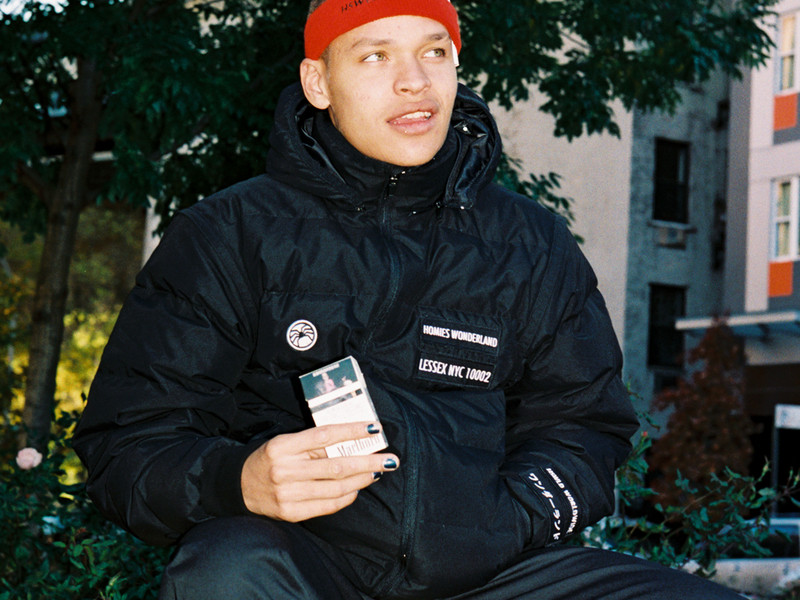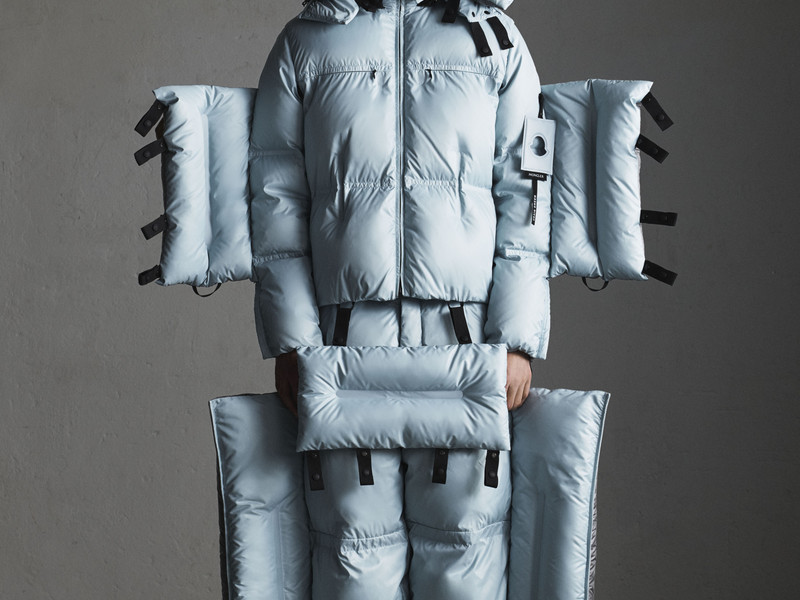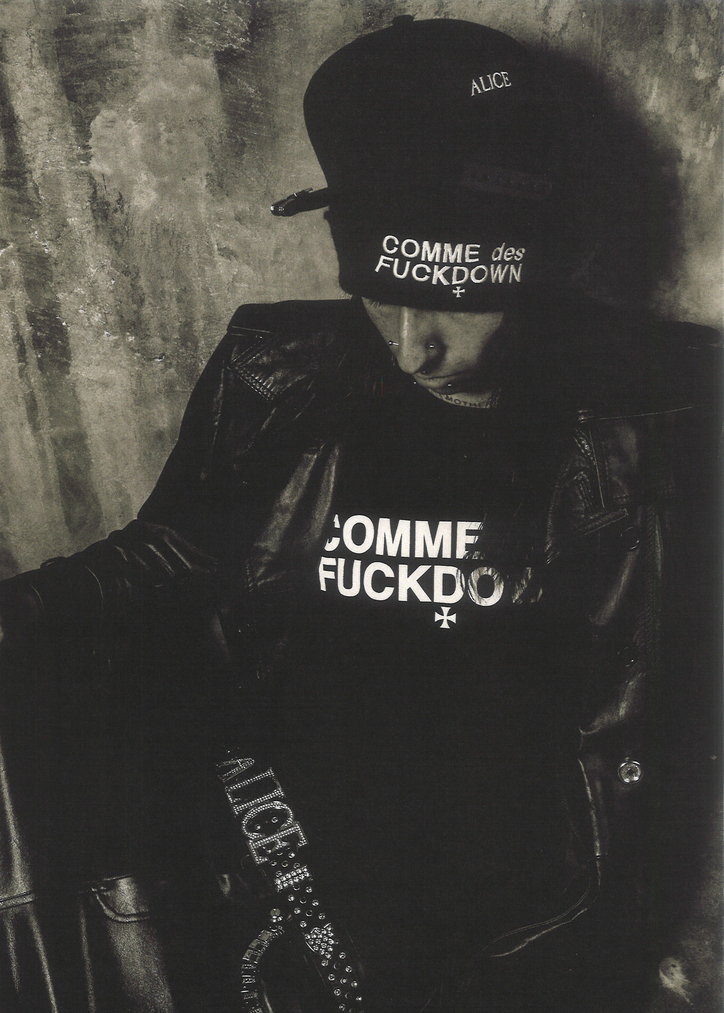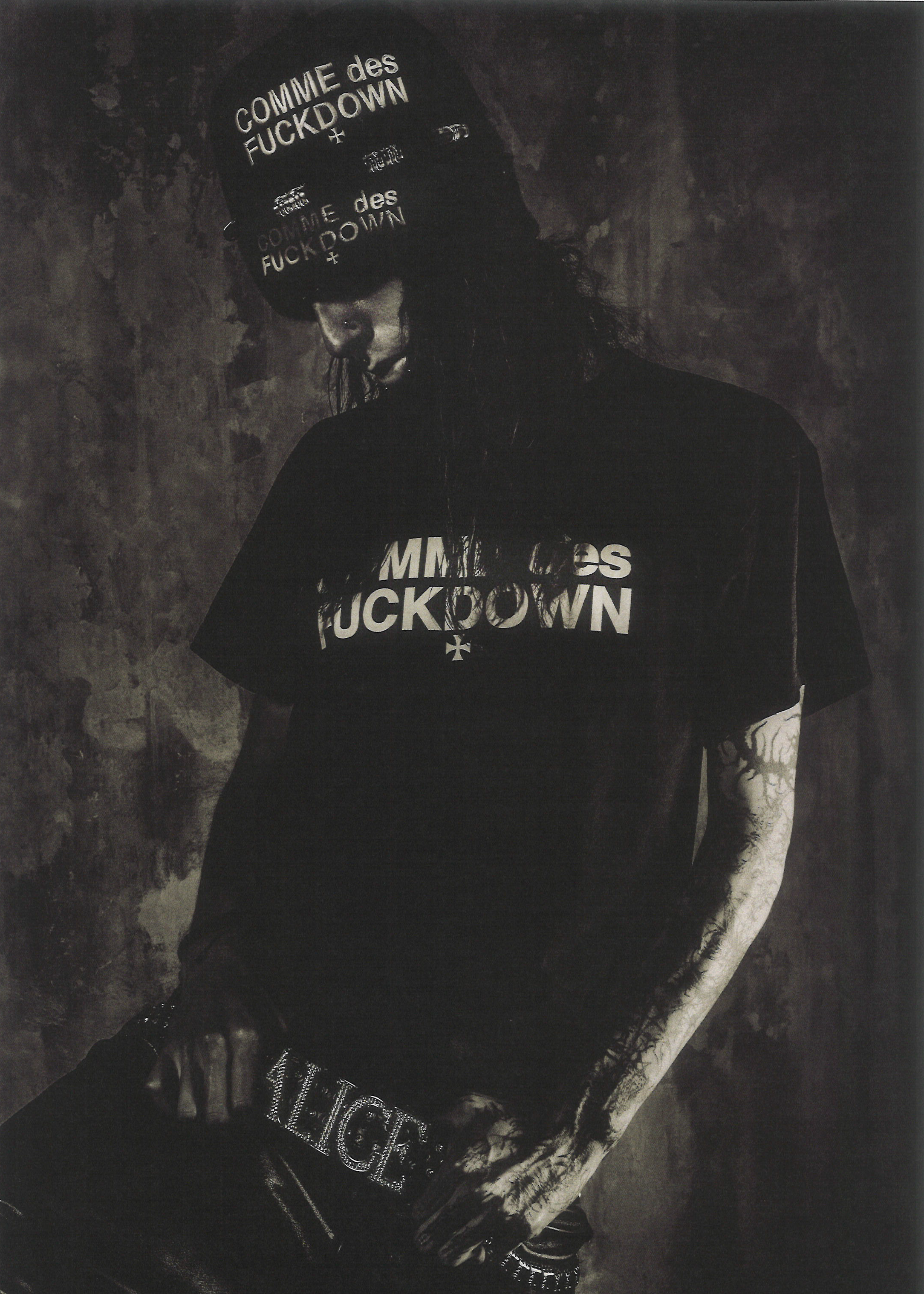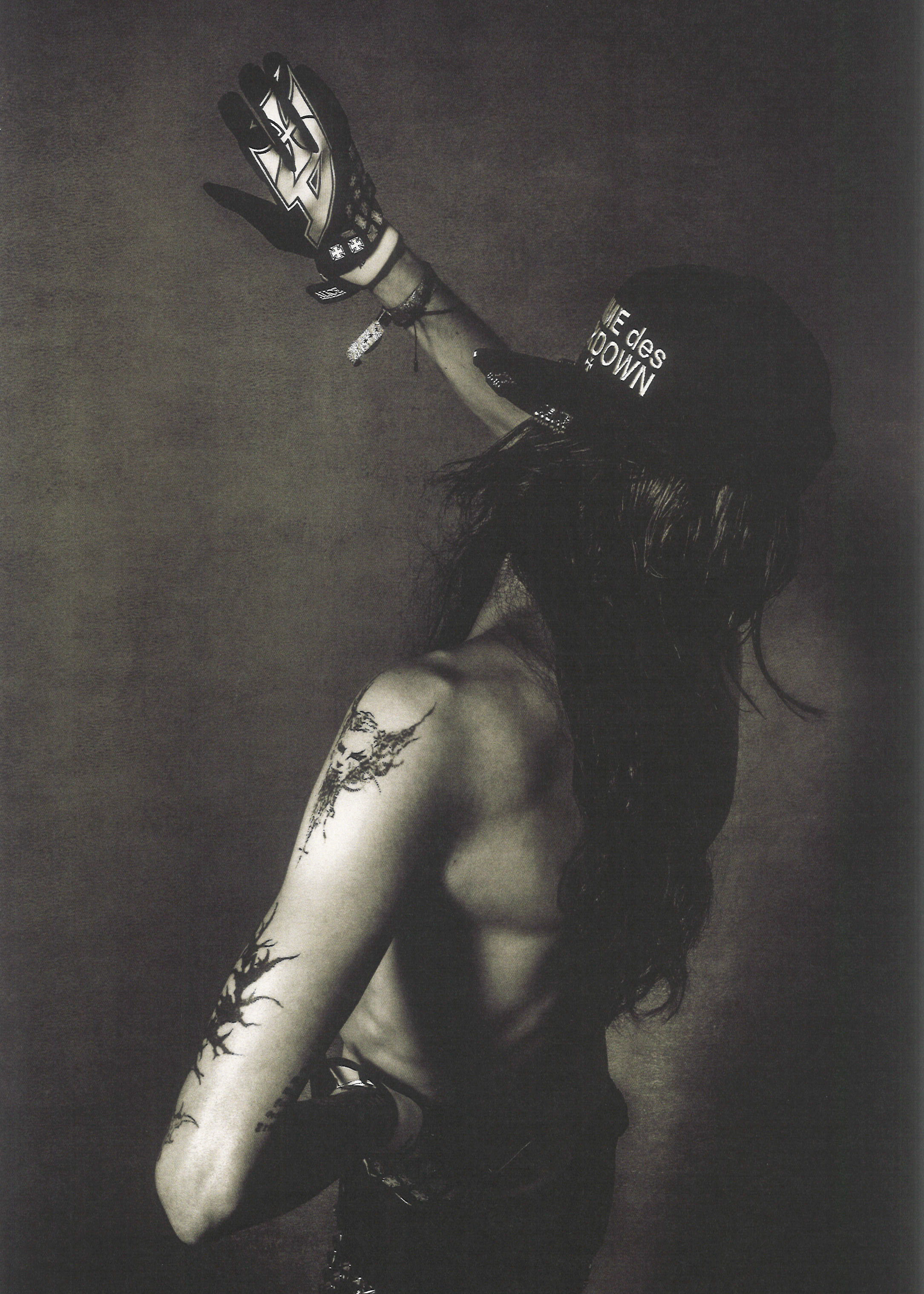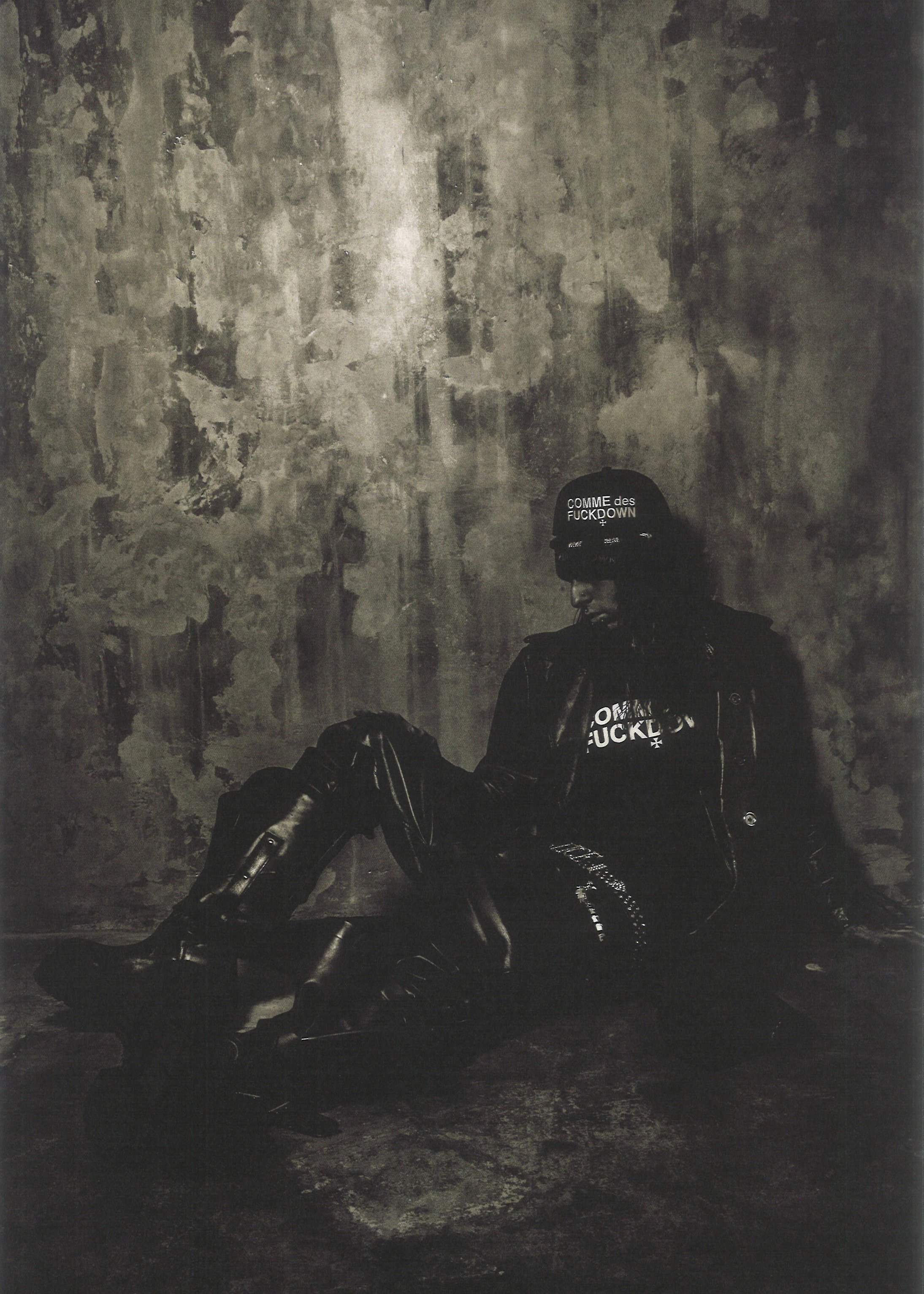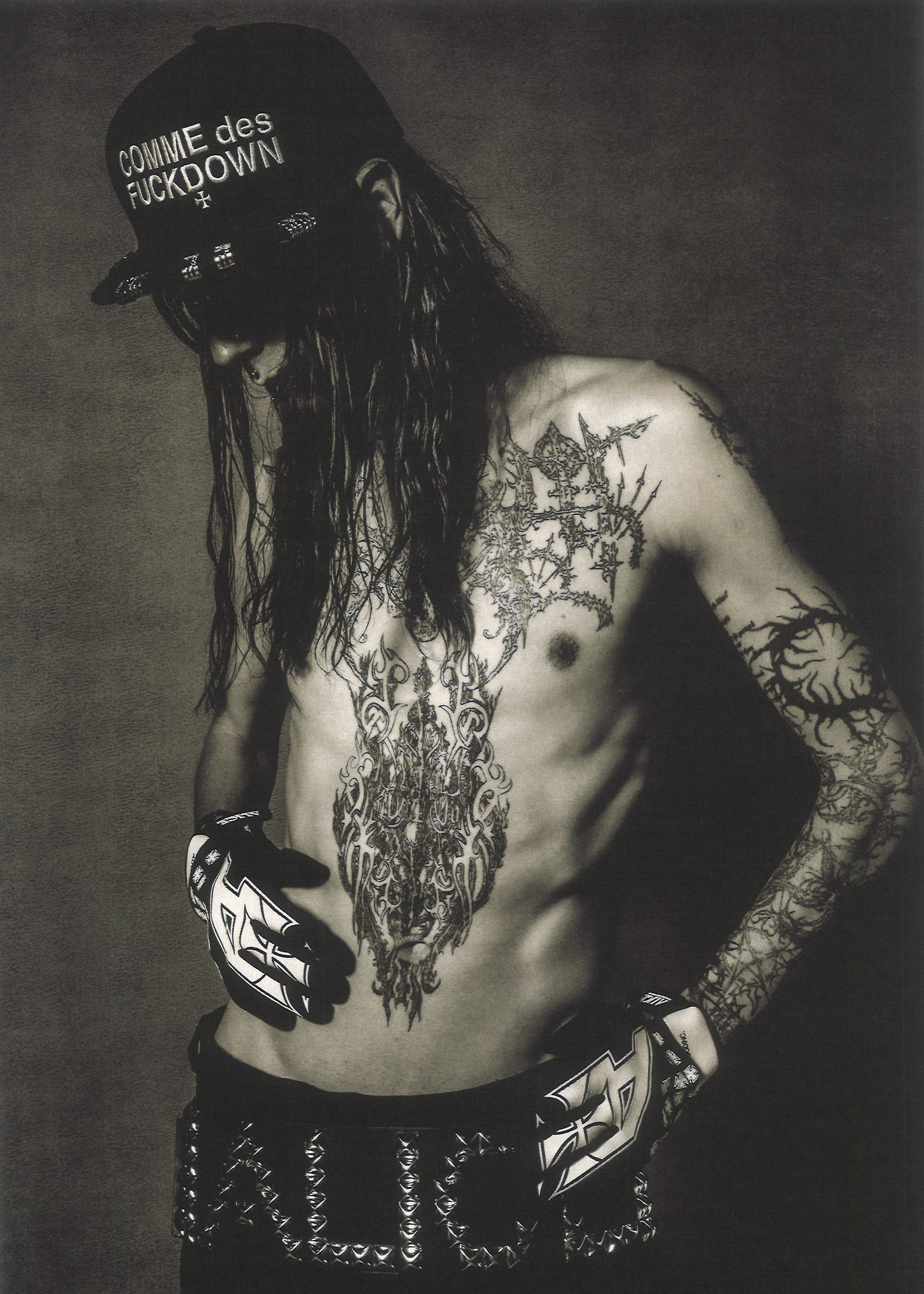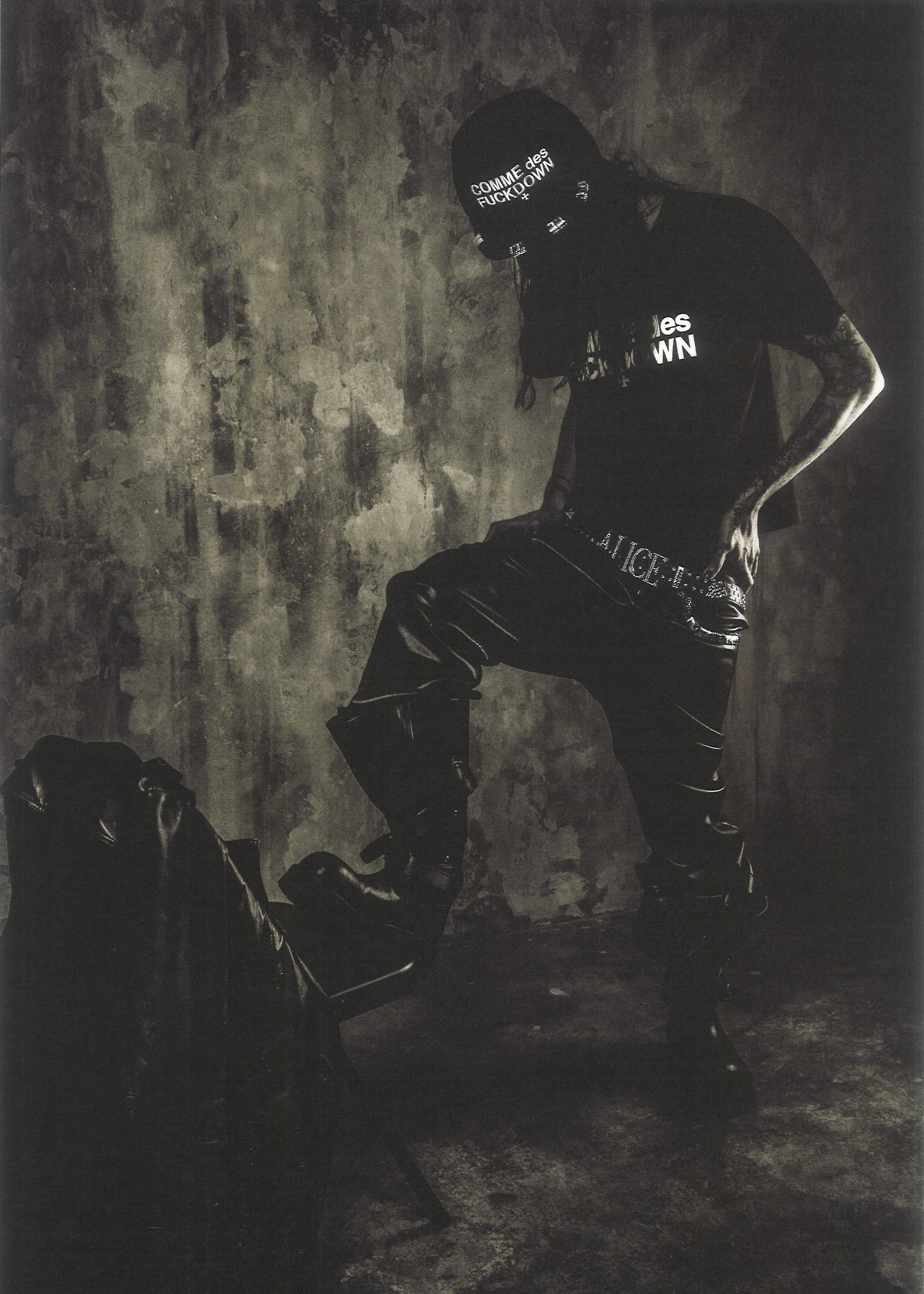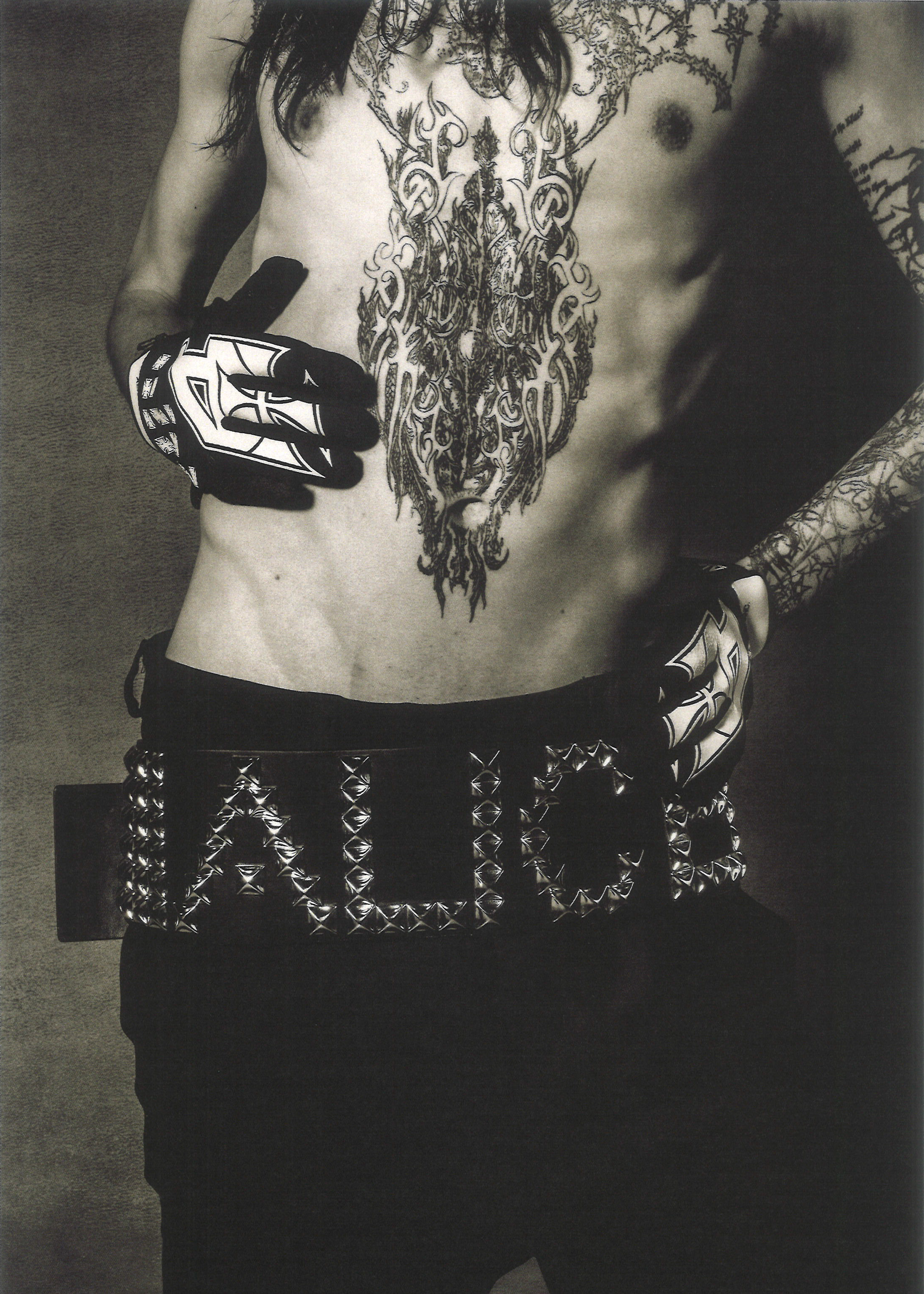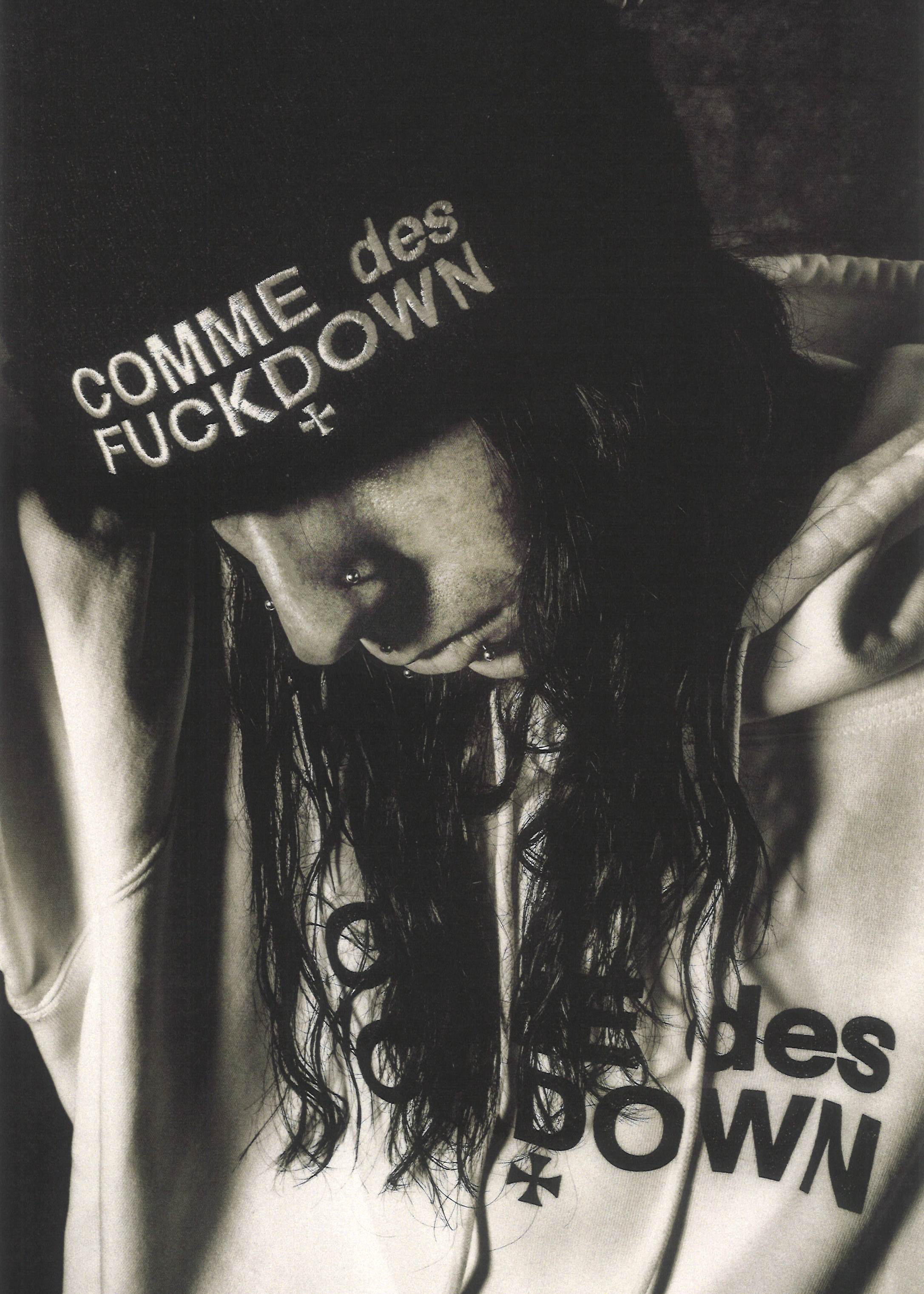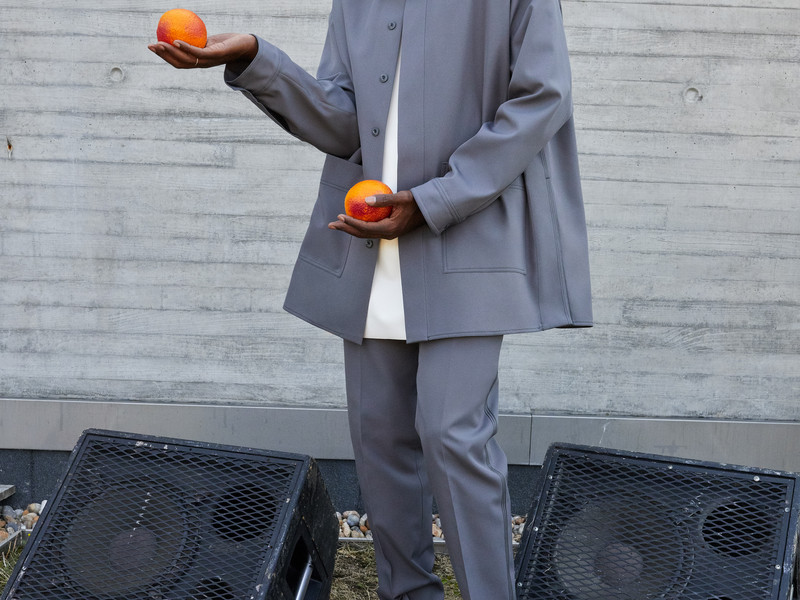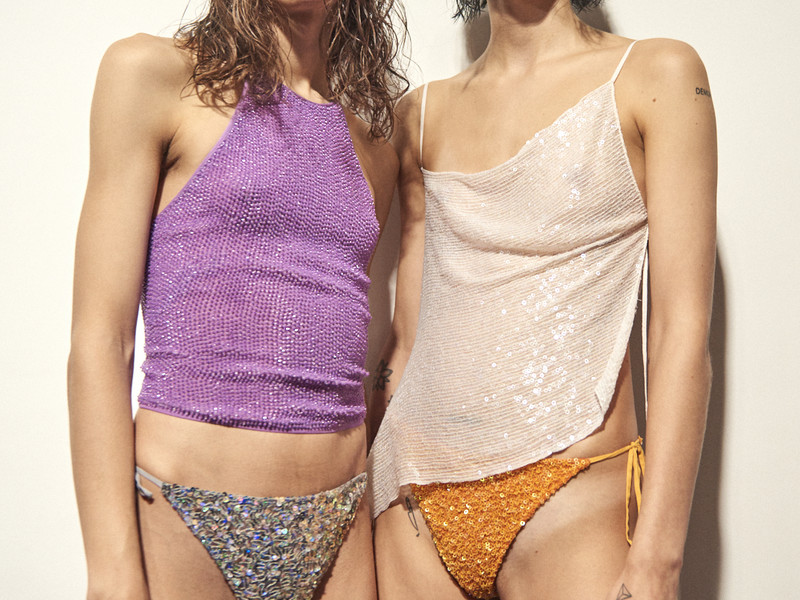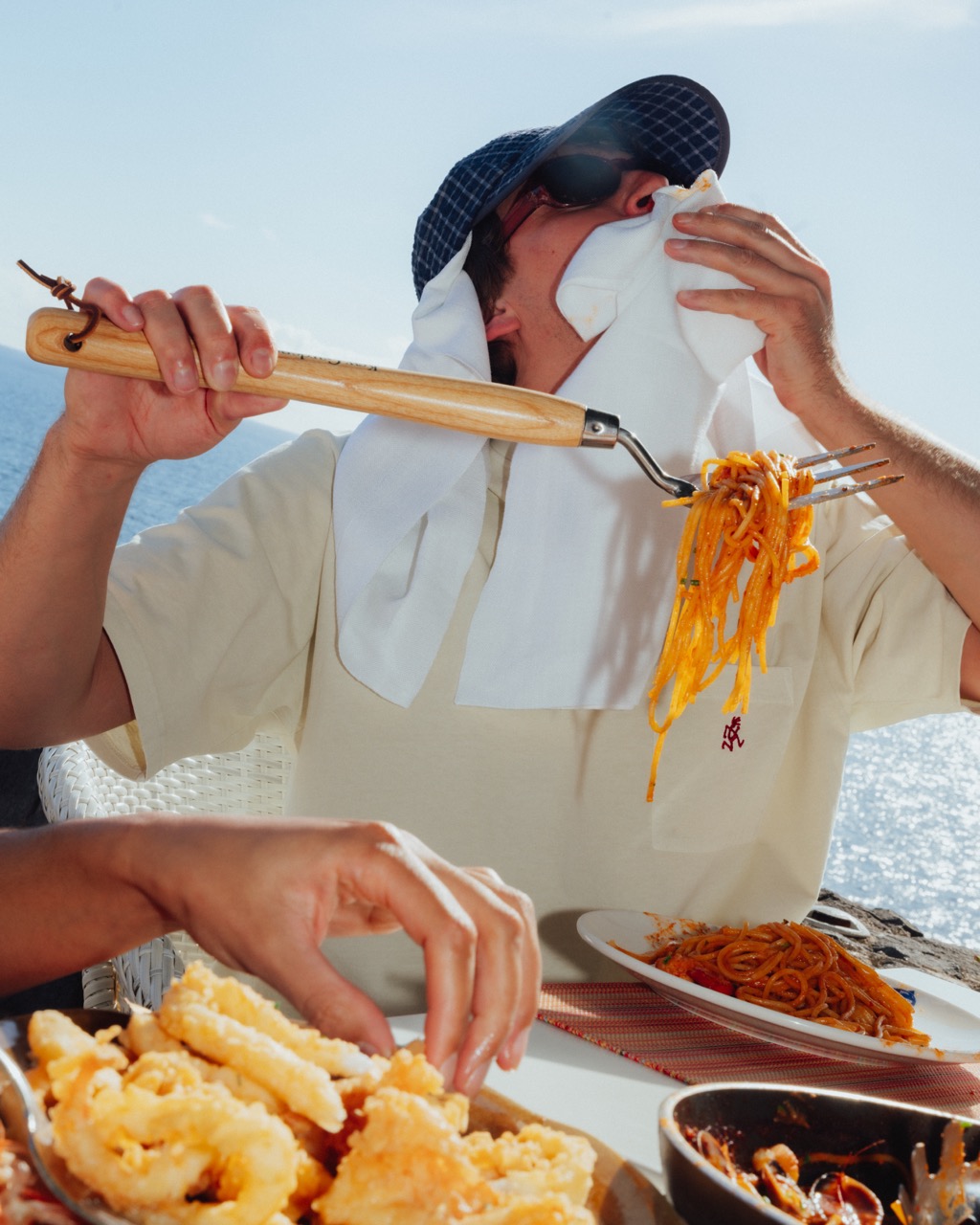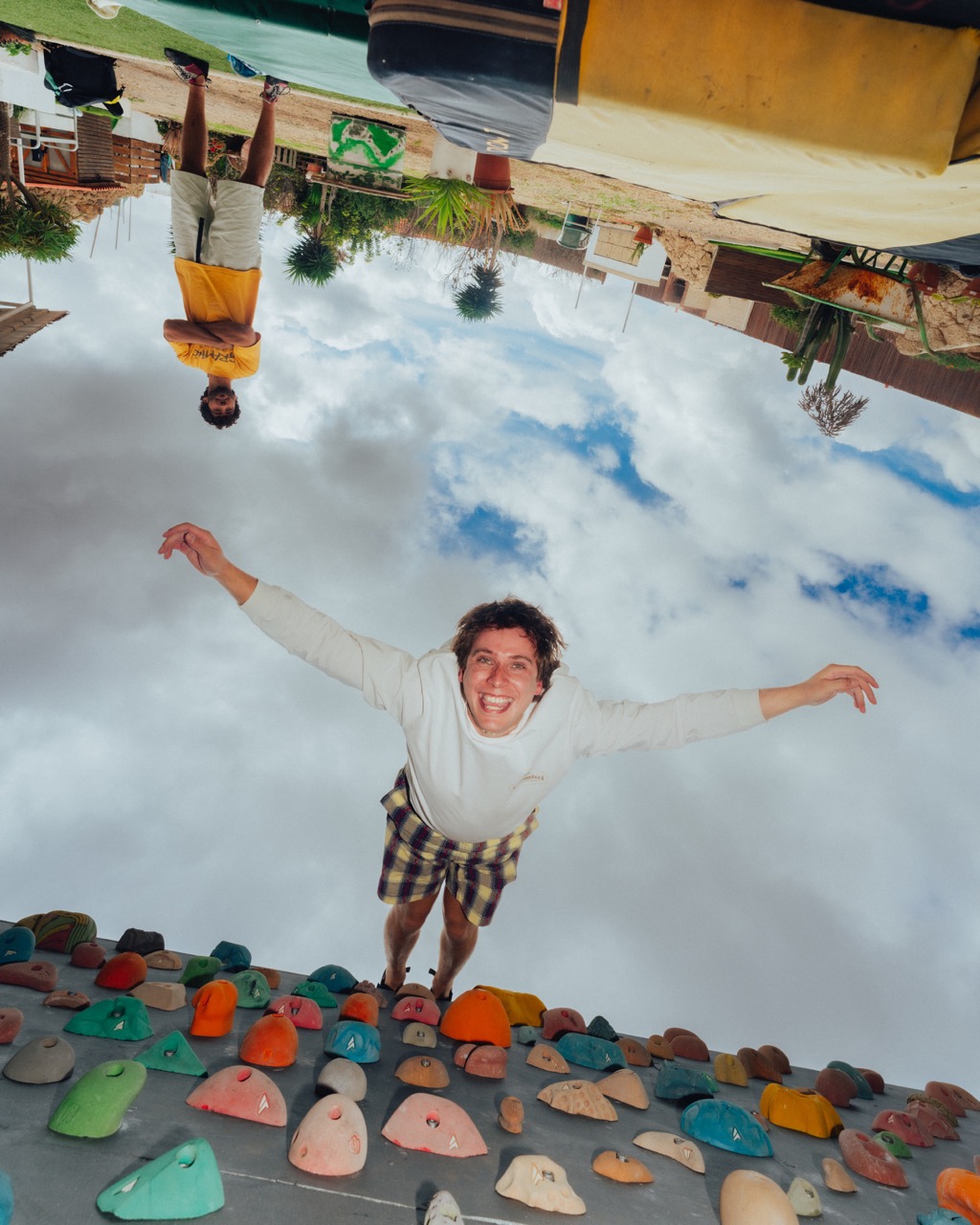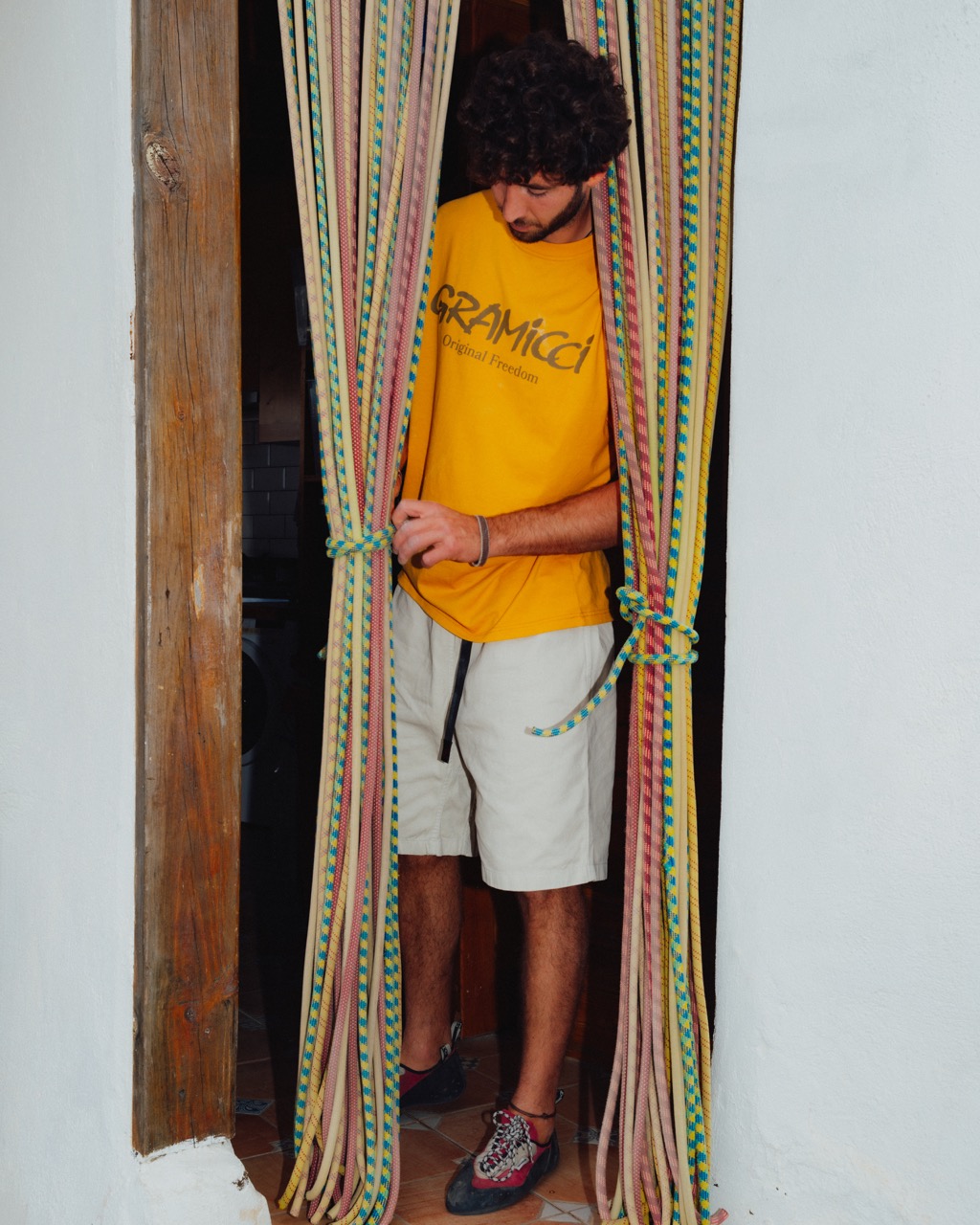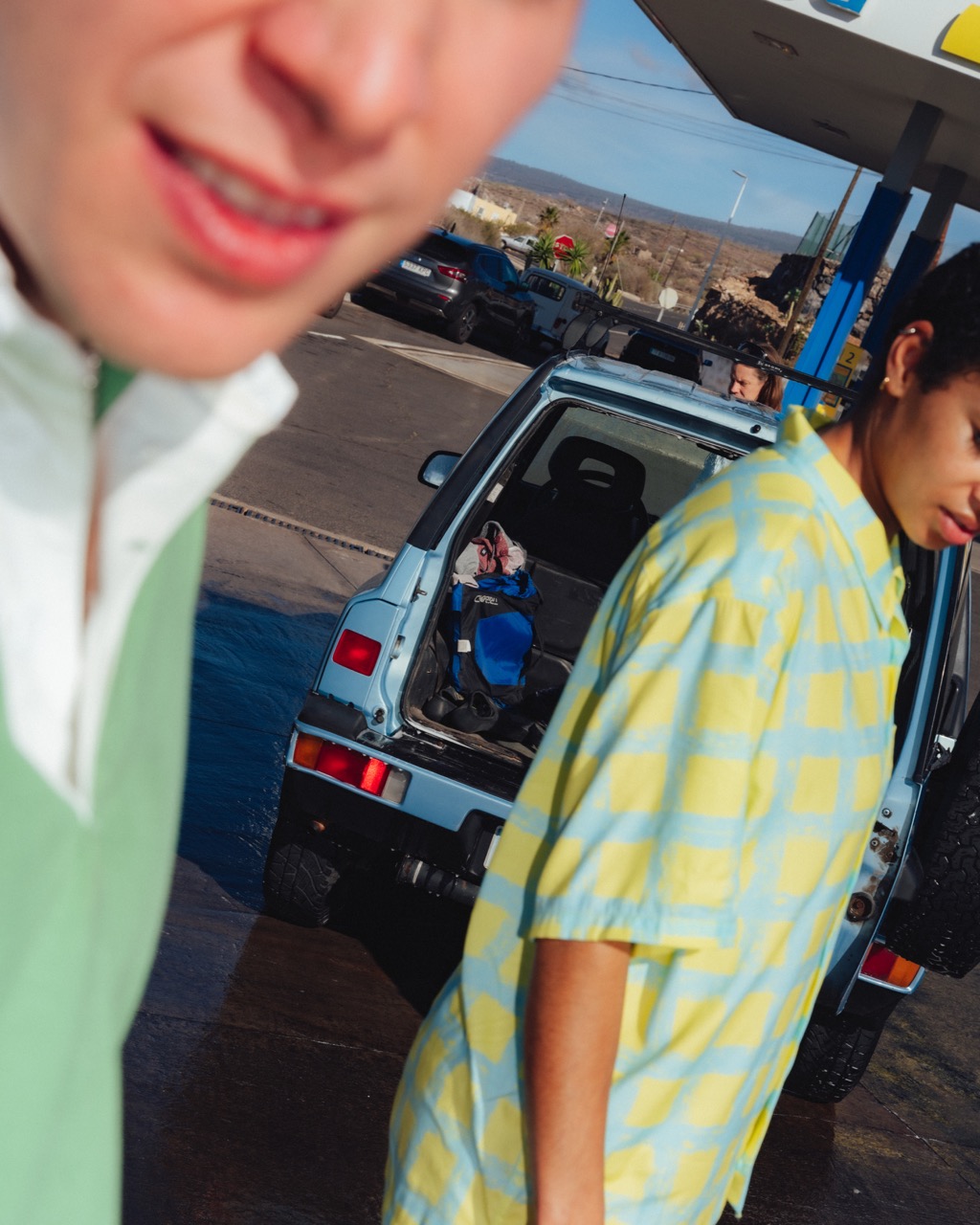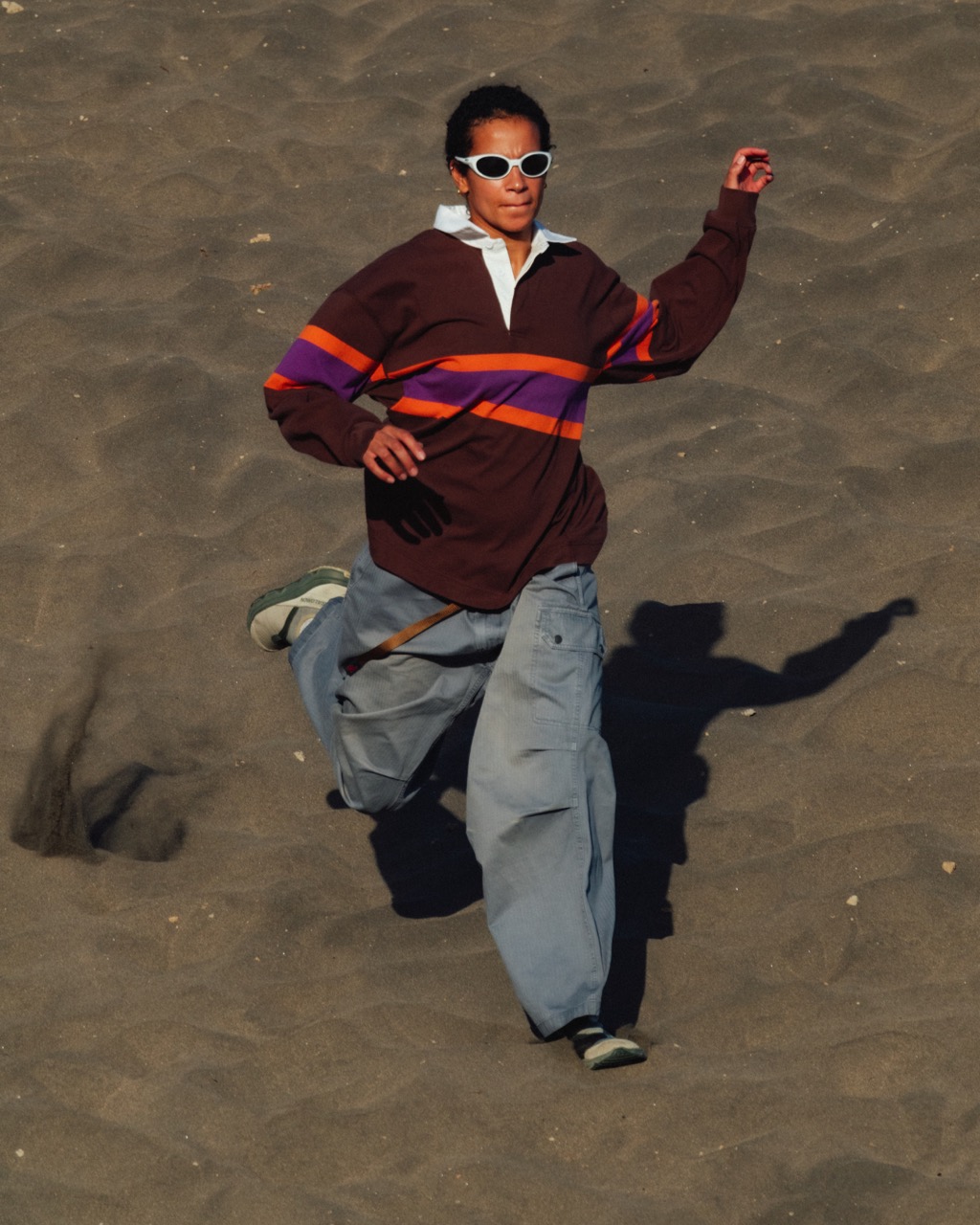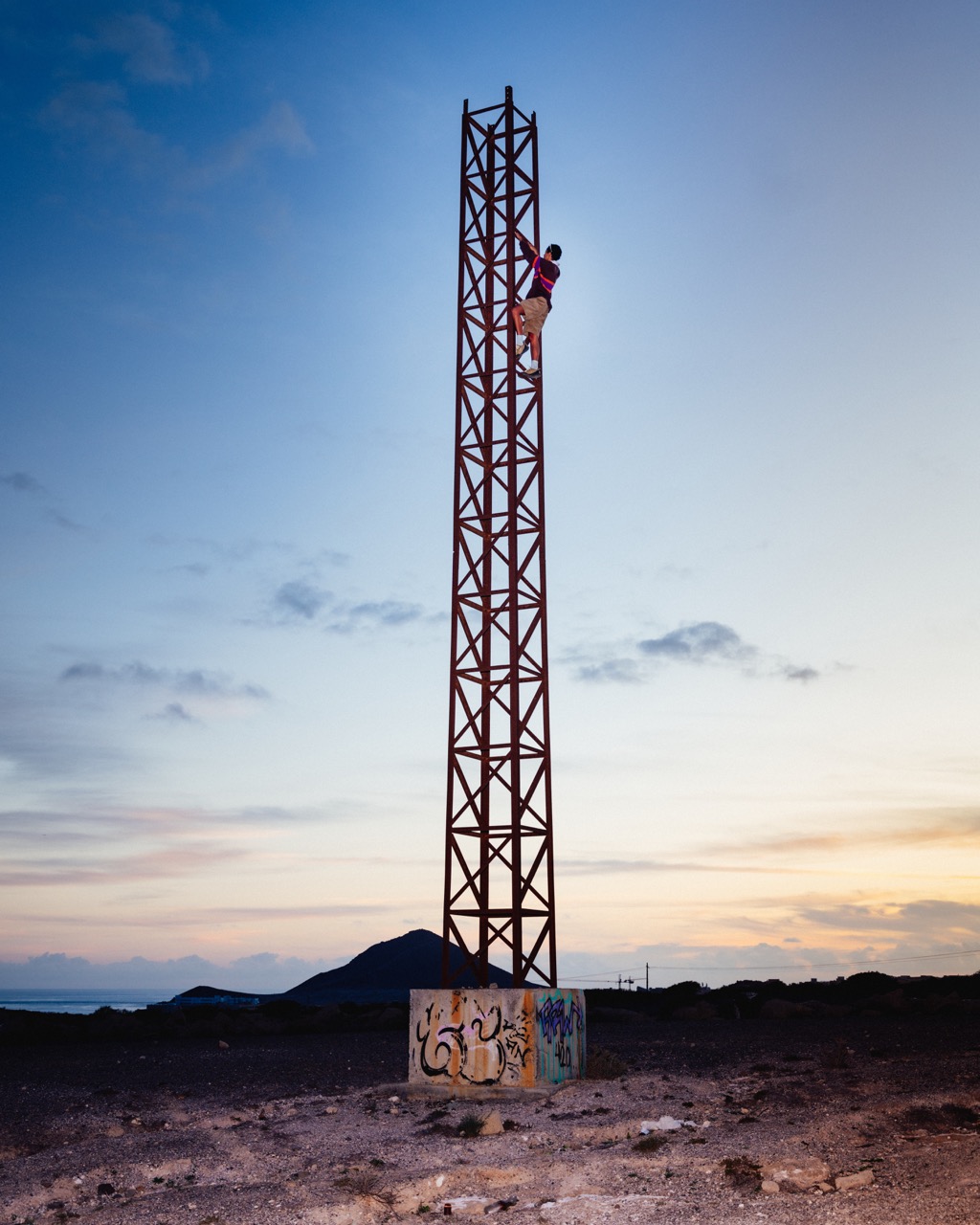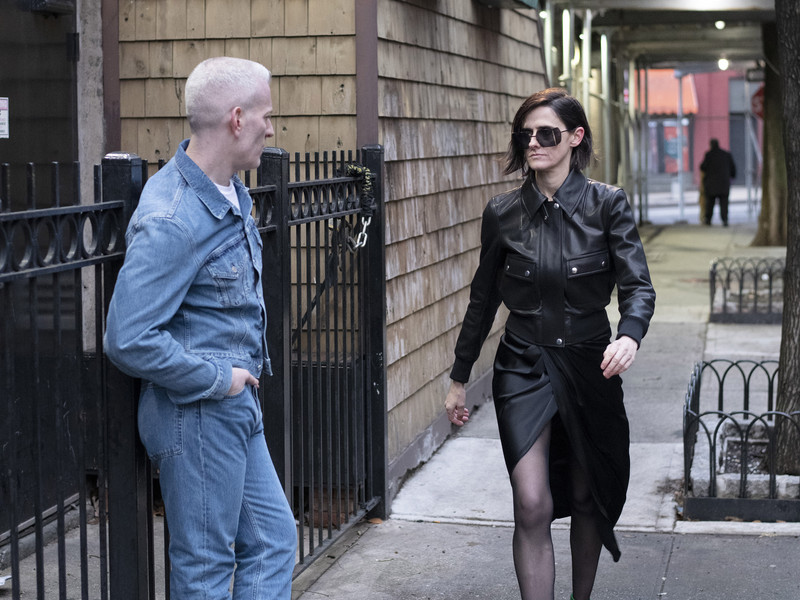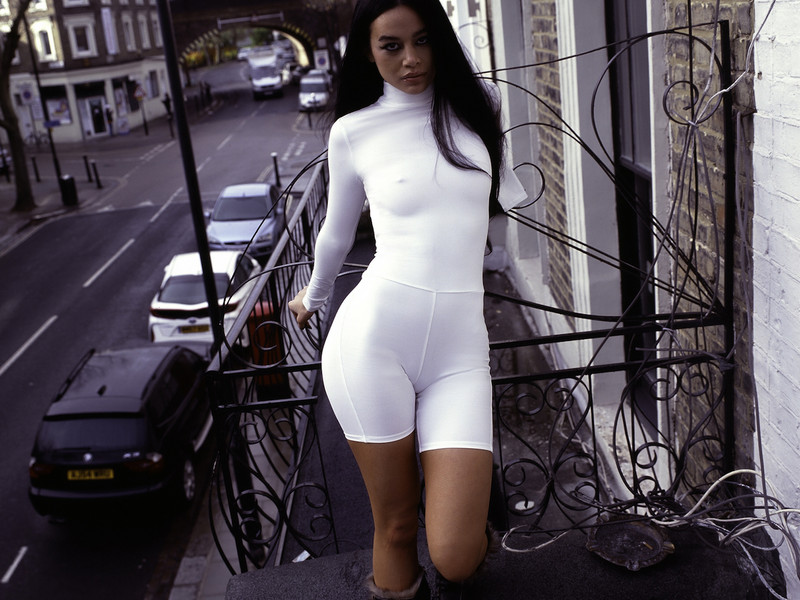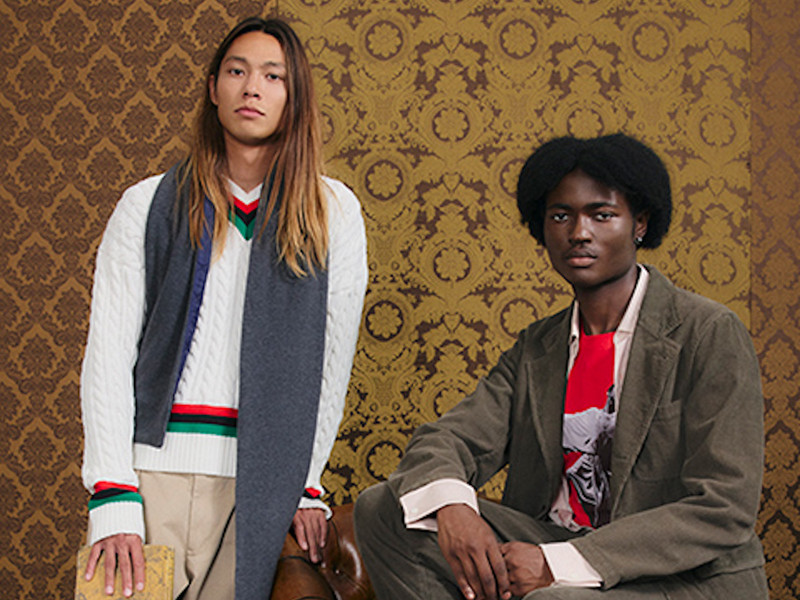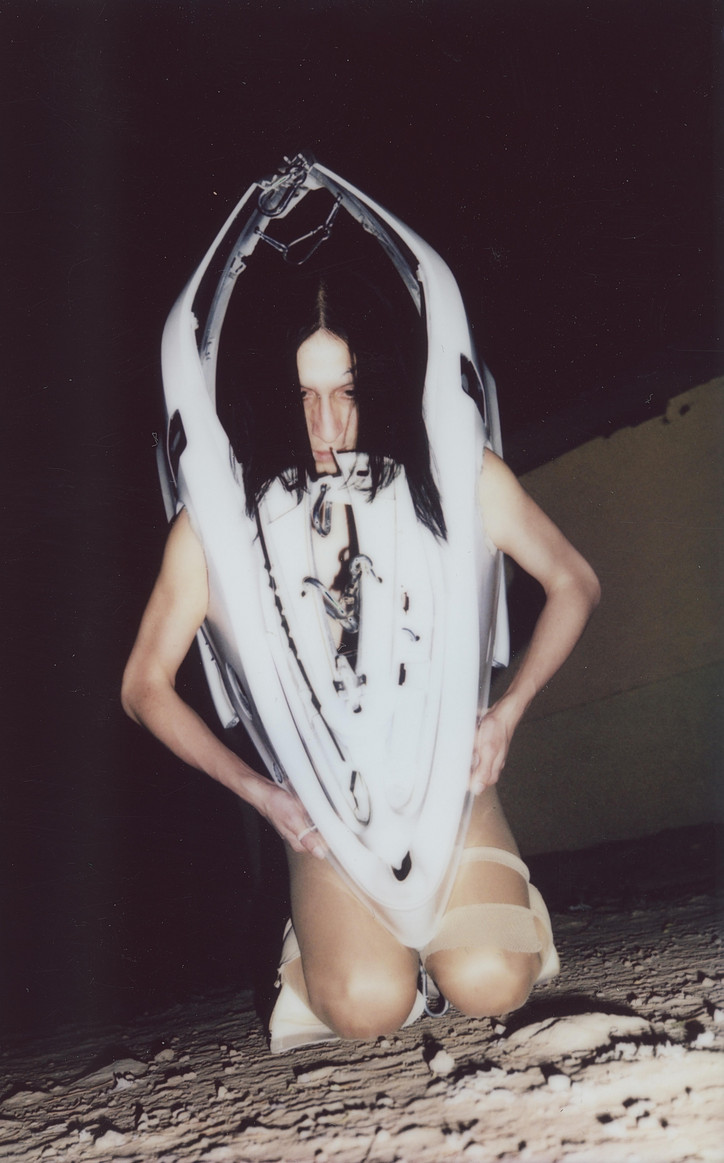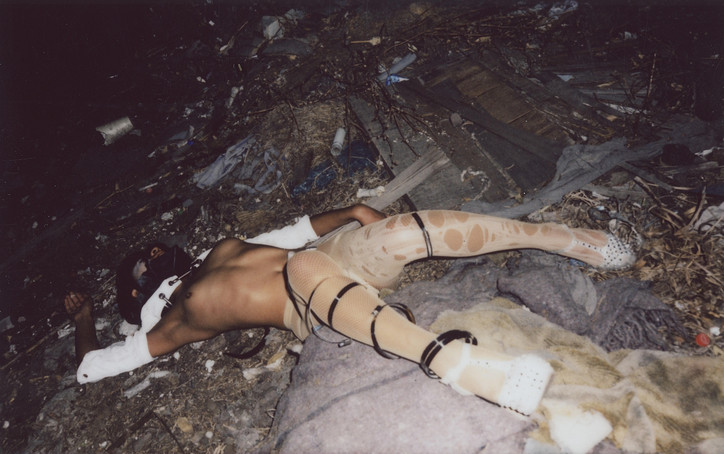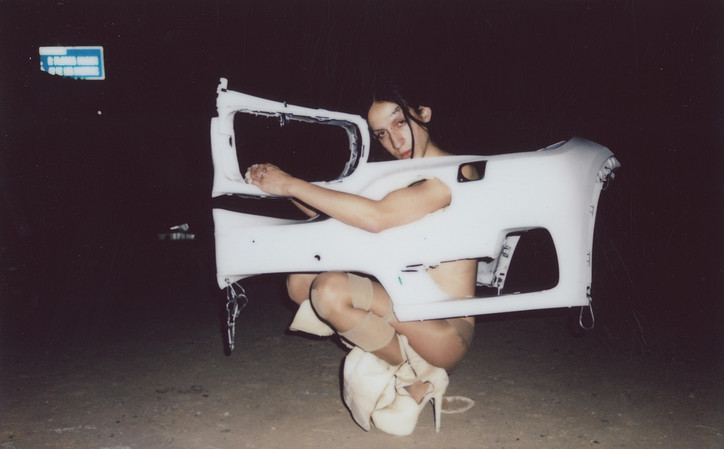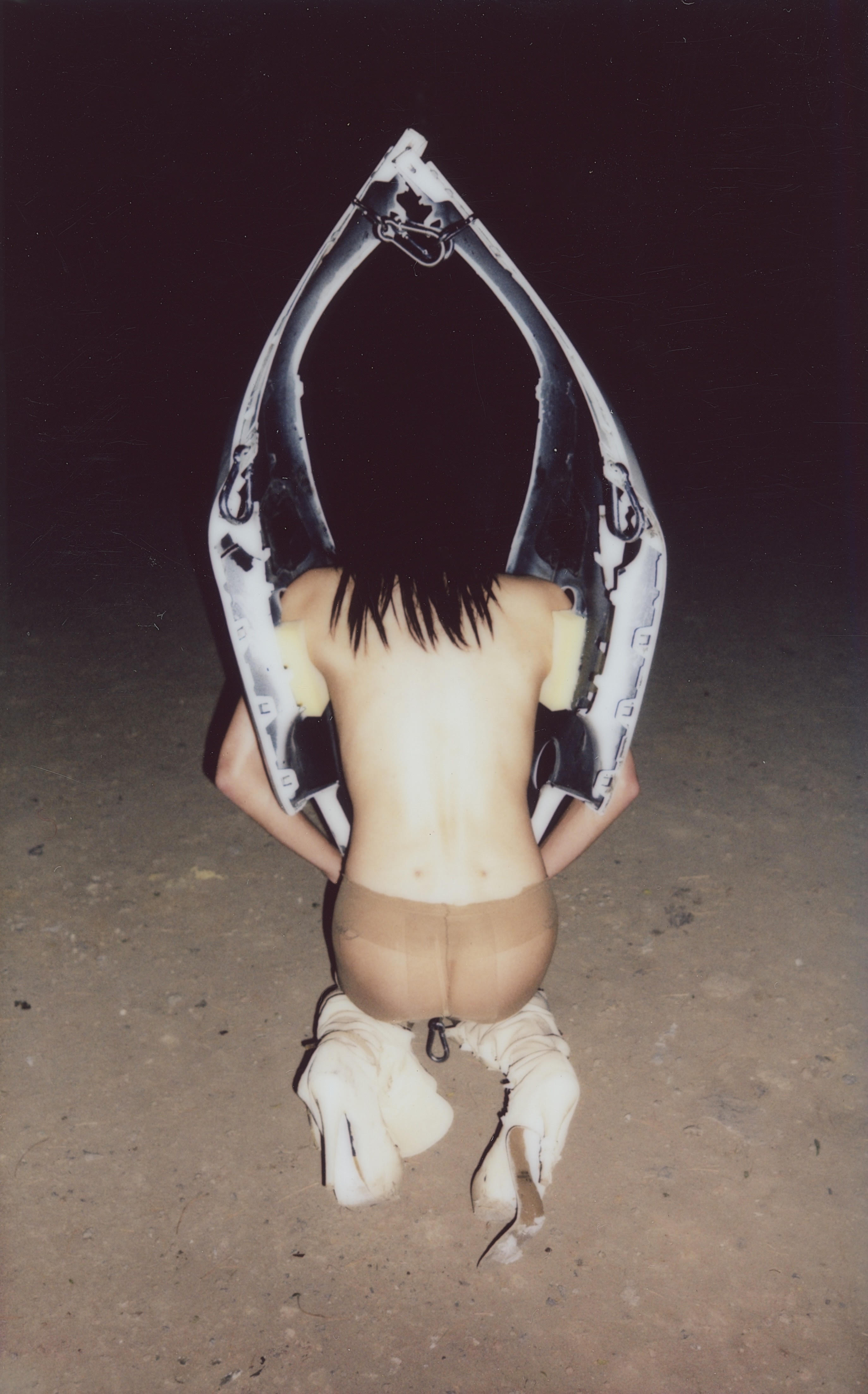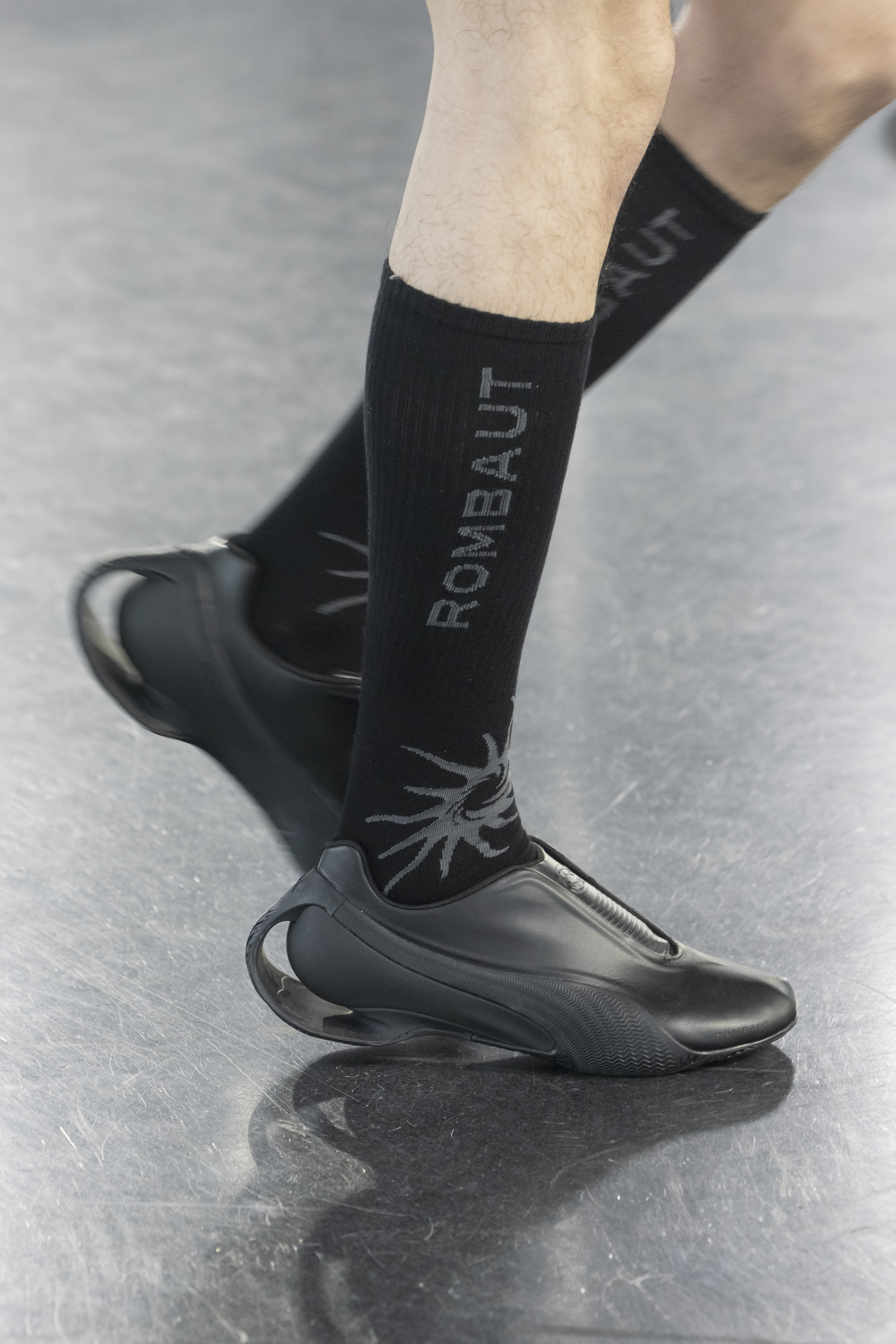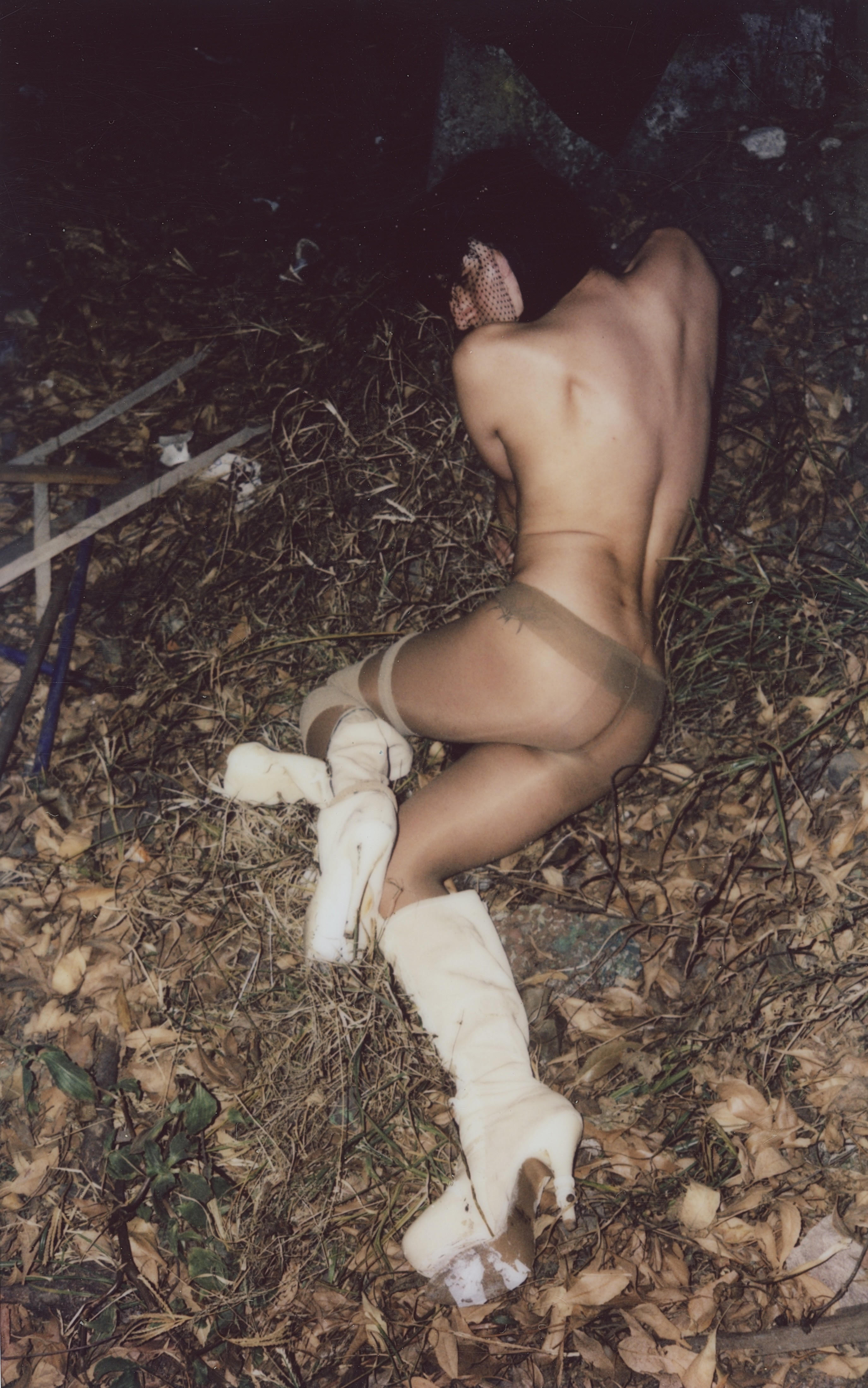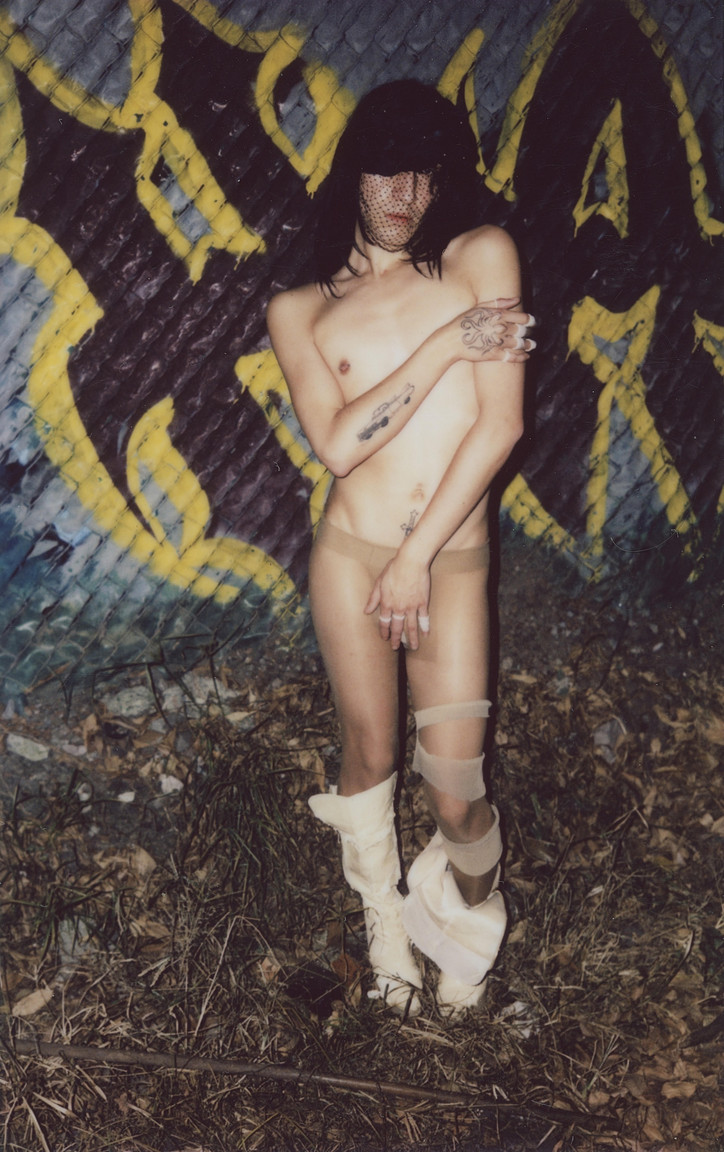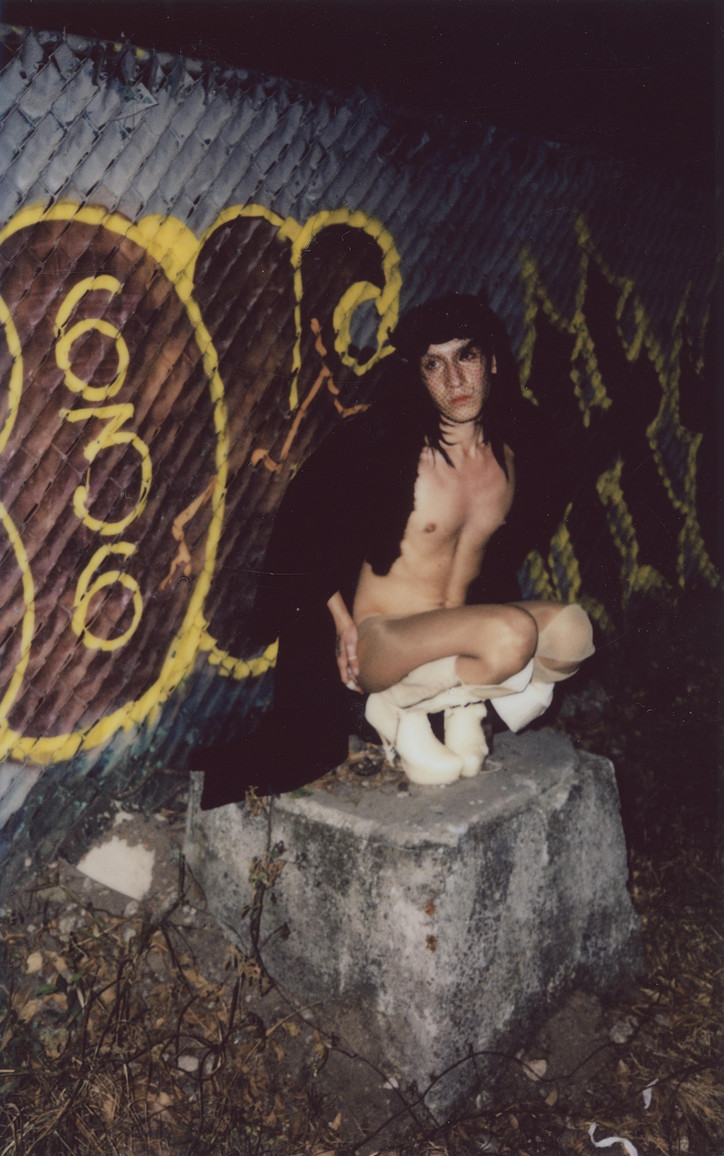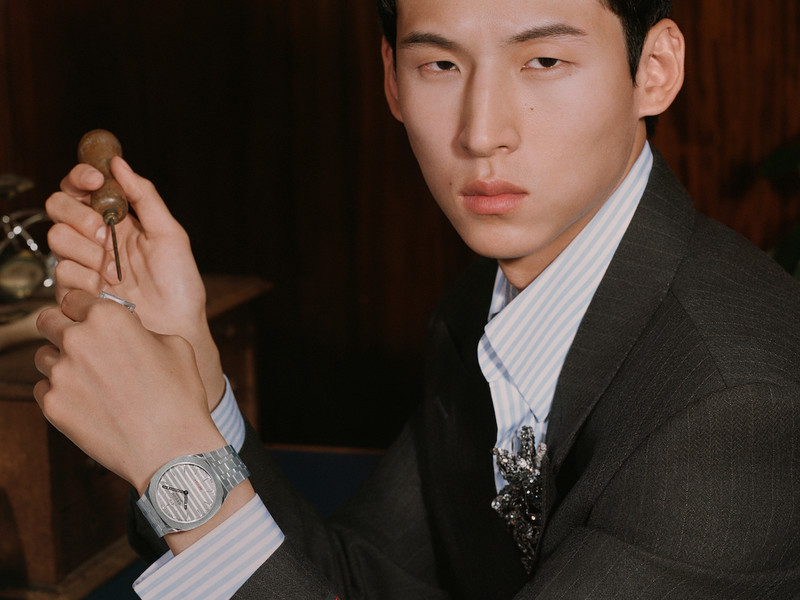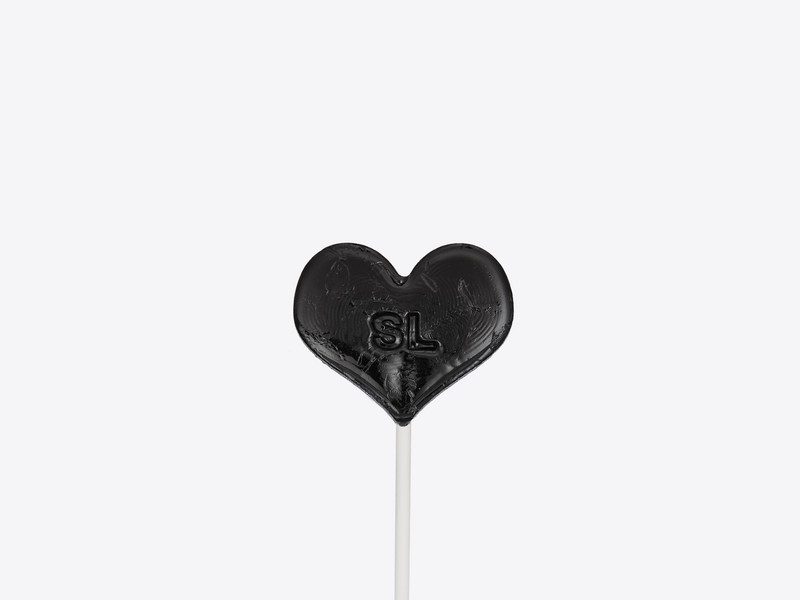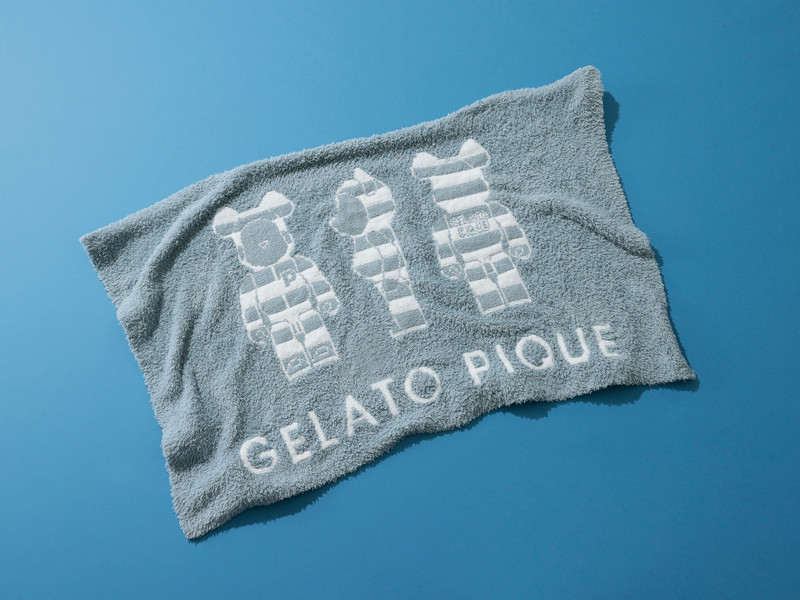The Wonderful World of Sally Oh
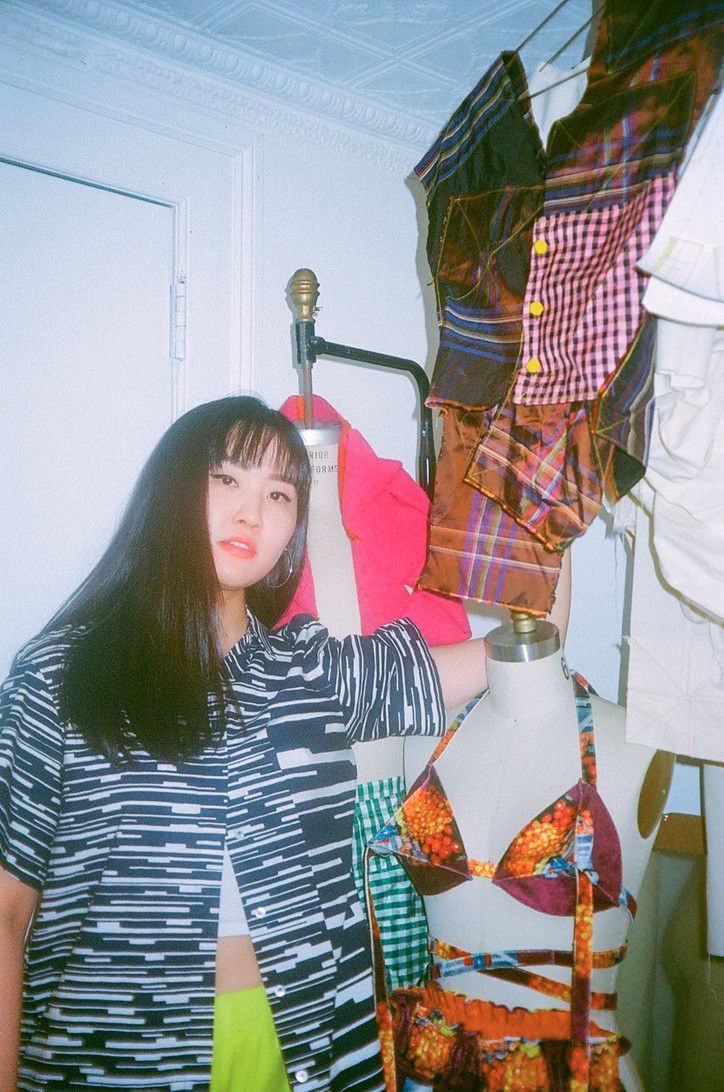
Alien, or Android? Which would you prefer to be?
For sure alien, no doubt about it. I don’t want to be A.I., I want to be a creature with a soul.
Do you head into each new project knowing exactly what message you want to convey; or does that come to you through the process?
My last collection, “100% THIS 1000% THAT,” was about being bicultural, and everything was inspired by Korean food. So, I created a character named “Shy Baby” and had her perform in a way that was really innocent and curious about the world. And her food was banana milk. Another character was “Fuck The World.” The food for that was raw ramen, which is really crunchy, hard and loud. In terms of the garments, at RISD we were taught the very classical way of creating a mood board—making technical flats and sketches. I usually start with a motif, texture, loose sketches, writing—that only make sense to me. Then I let the pattern making and draping process guide the rest, which I think is really alternative.
Is that uncommon?
In the industry, you have to run your ideas by so many people before they come into fruition. The chance to say, “Oh wow, this works. Let’s ditch the sketch, and go in this new direction"—it’s a riskier, more innovative process full of failures before you finally land at your sixth set of patterns that works.
If you could only have one talent, what would it be? And would it be enough?
To have zero stage fright of any kind. No shyness, no fear.
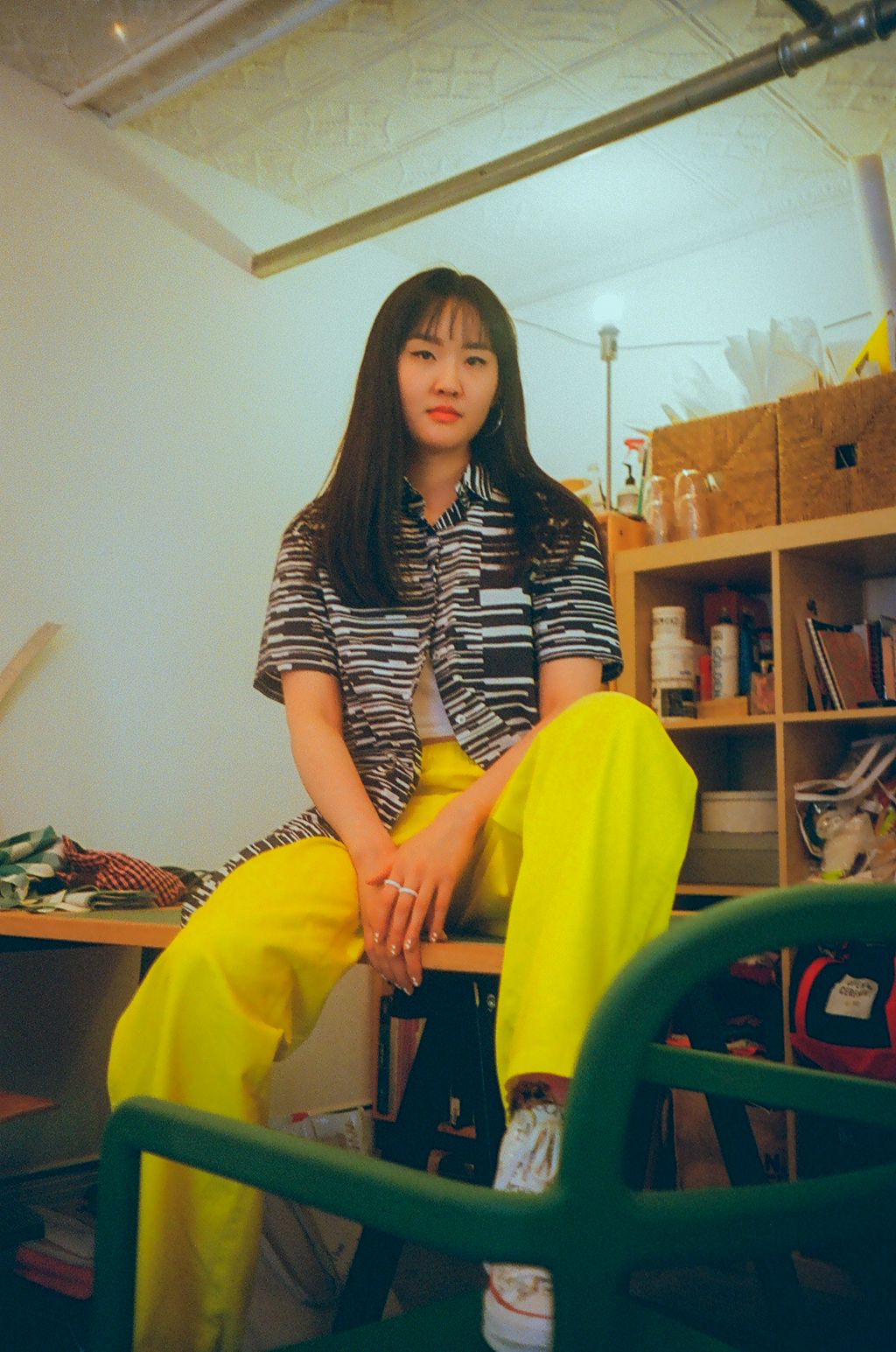
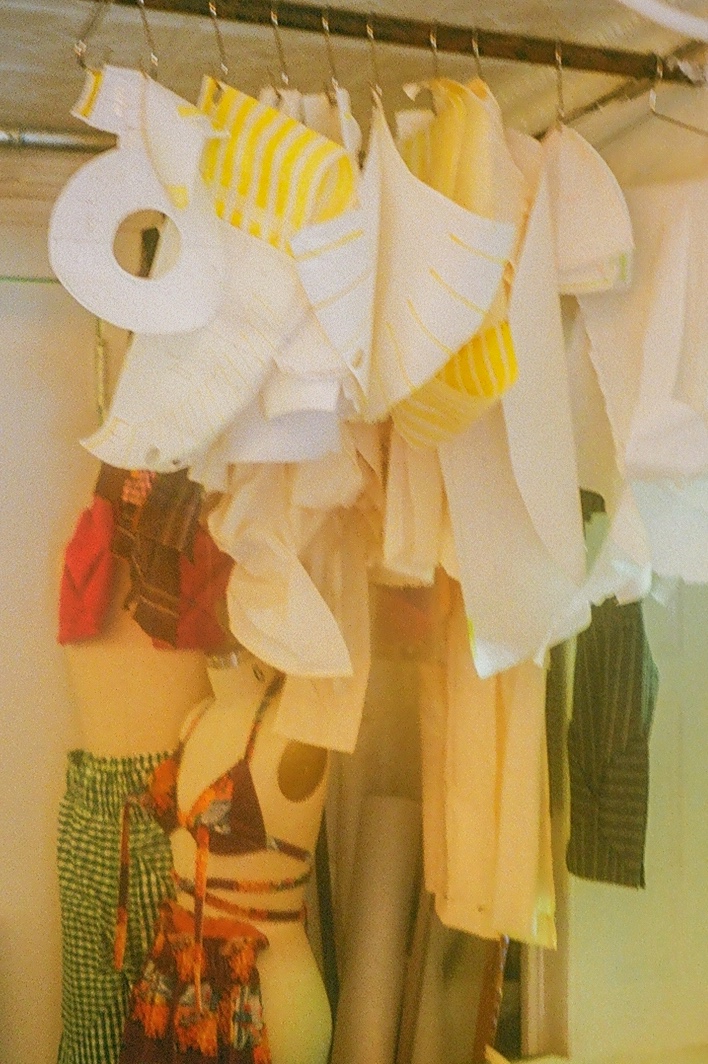
Let’s talk about “Chastitty”. Where she began, and how did she end up here?
Coming from a conservative trifecta—Korean, Christian, Texan—I grew up believing I’d lead a specific, set life consisting of education, marriage, children, death and salvation. All of that exploded when I started asking questions. "Chastitty" was originally a fucked up bride. The wedding dress is such a strange thing, because it proclaims purity, virginity and femininity... we have the coochie hole, the booty cheeks and obviously Chas-titty: her titties out, which splays society’s lustful gaze of the female body back in our faces. This idea of virginity (chastity) and sexuality (titty), overlaid with society’s scarlet letter—the expectations of womanhood—are just so paradoxical and impossible... A woman’s sexual history shouldn’t be a past she feels the need to hide or feel embarrassed by. I used muslin only—a choice reflecting the class hierarchy thrown in everybody’s face at weddings. It’s such an extravagant event: the dress, how much money this couple has, the ring... So I chose the cheapest fabric: muslin, for four dollars a yard. It’s also the most unforgiving fabric. It shows every wrinkle, every mistake, which is why it’s used in the studio. It’s the most honest.
One song you wish you had written?
Definitely a Kanye song. The opening line of “Can’t Tell Me Nothing” is: “I had a dream I could buy my way to heaven. When I awoke, I spent that on a necklace.” Is that not crazy?! Even if we’re offered salvation—if heaven exists—we don’t choose that. We choose to buy necklaces and earthly riches...
What inspired “Things I Almost Remember” — and is this piece for you, or someone else?
Something I’ve been paying attention to is my obsessions. Anastasia has stayed seared in my mind for most of my life. It came out in 1997. I was born in ‘91, so I was six years old when I saw this. It was terrifying. Rasputin is the ultimate villain, in my opinion, and Anastasia is this estranged daughter I identify with for a number of reasons... so Rasputin embodies all things standing in the way of me being “Together (with my family) In Seoul,” or being one with the things that family symbolises in general.
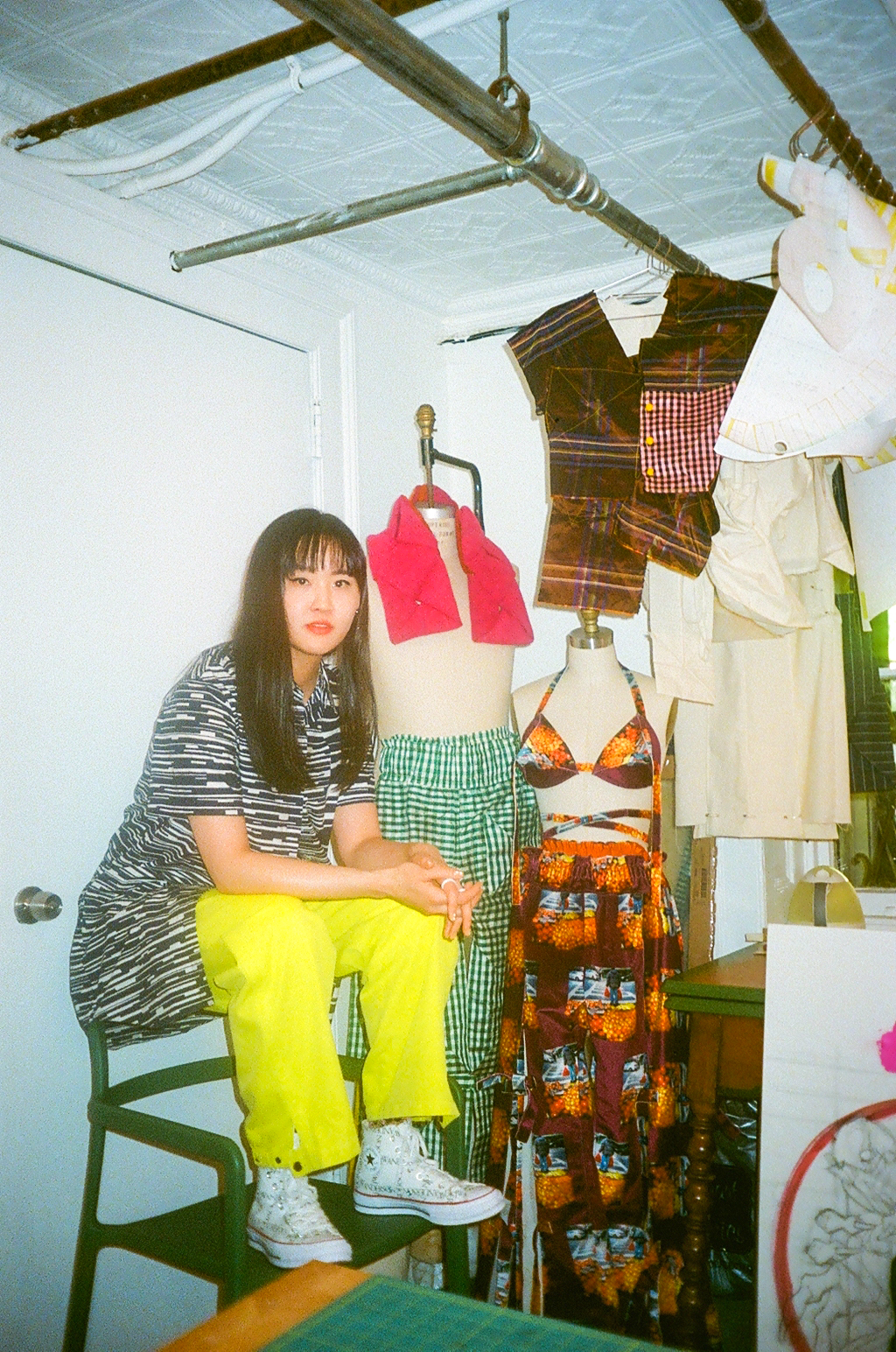
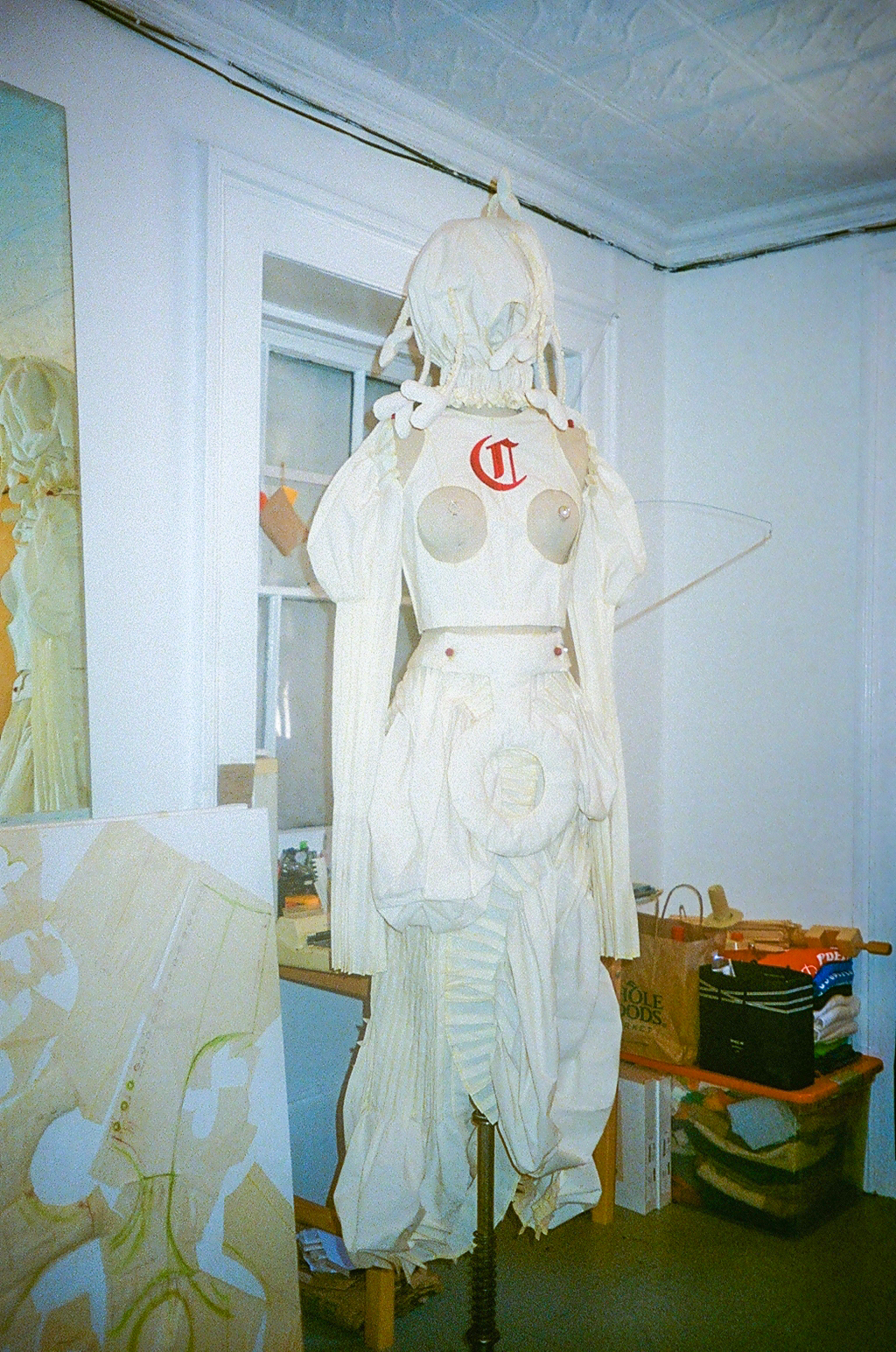
If you weren’t a Capricorn, what sign you would want to be?
Gemini! They’re so polarising. When you hear someone’s a Gemini, everyone’s like, “Oh shit, this person’s a psycho,” and I like that. They’re known for having many faces, yes—but we all do. A lot of my heroes are Gemini... I completely romanticise them.
How can the art world become more egalitarian, and inclusive? Do you see hope?
It gets complicated when art is tied to commerce, specifically with fashion. Real change has to start in the sweatshops. It has to start at the foundation. When people use QTPOC for marketing without caring about the POC who are making the clothes behind the scenes—that’s more for the brand rather than for the ethics, the people, the heart.
Do you believe in God?
I do believe in God. I don’t know what God looks like. I don’t necessarily know if I fully believe how God is portrayed in religion, but I do believe that there’s something bigger than us.
Do you believe in you?
I do believe in myself! I believe in my skills. I believe that I need this craft to live.
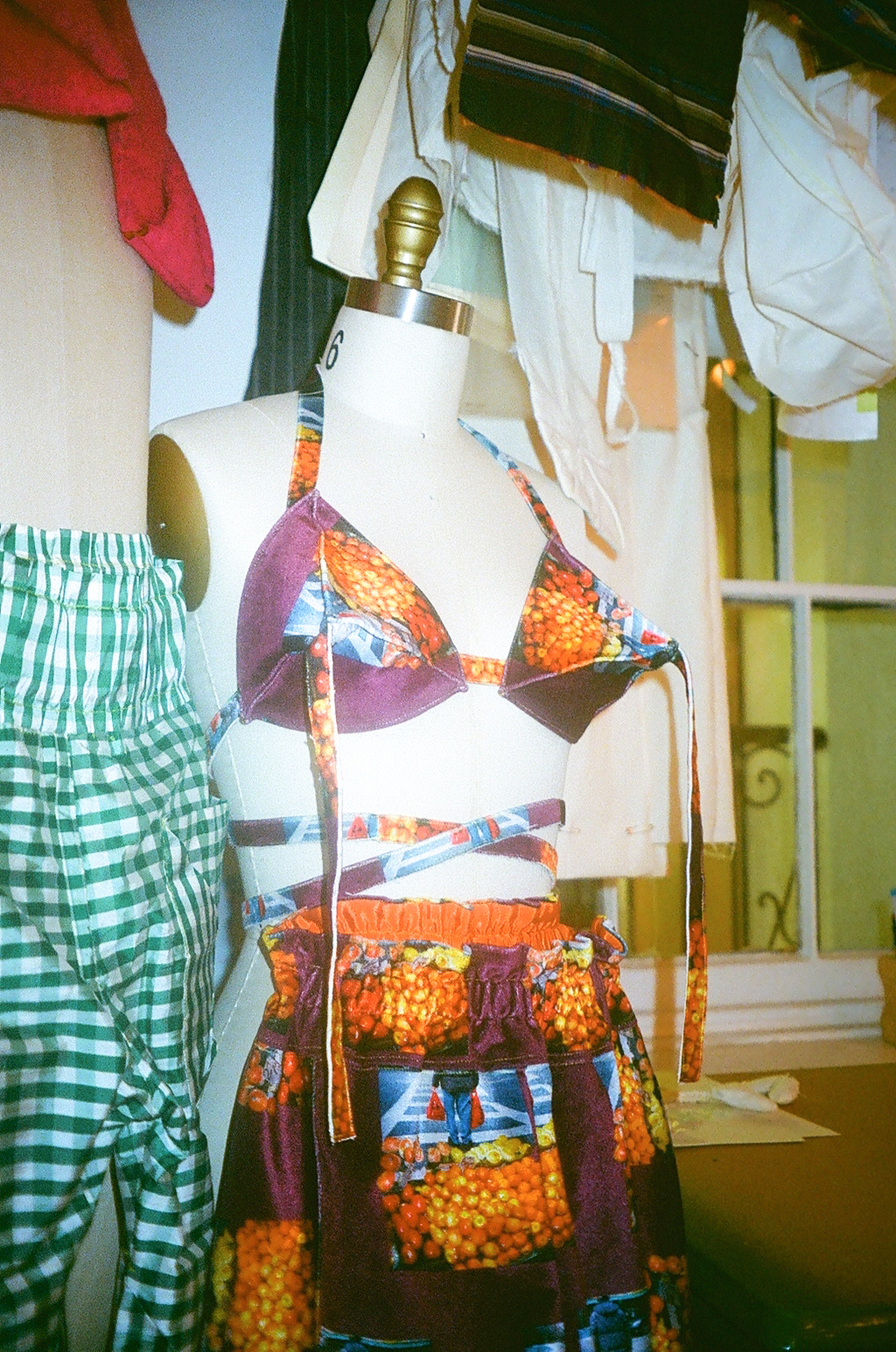
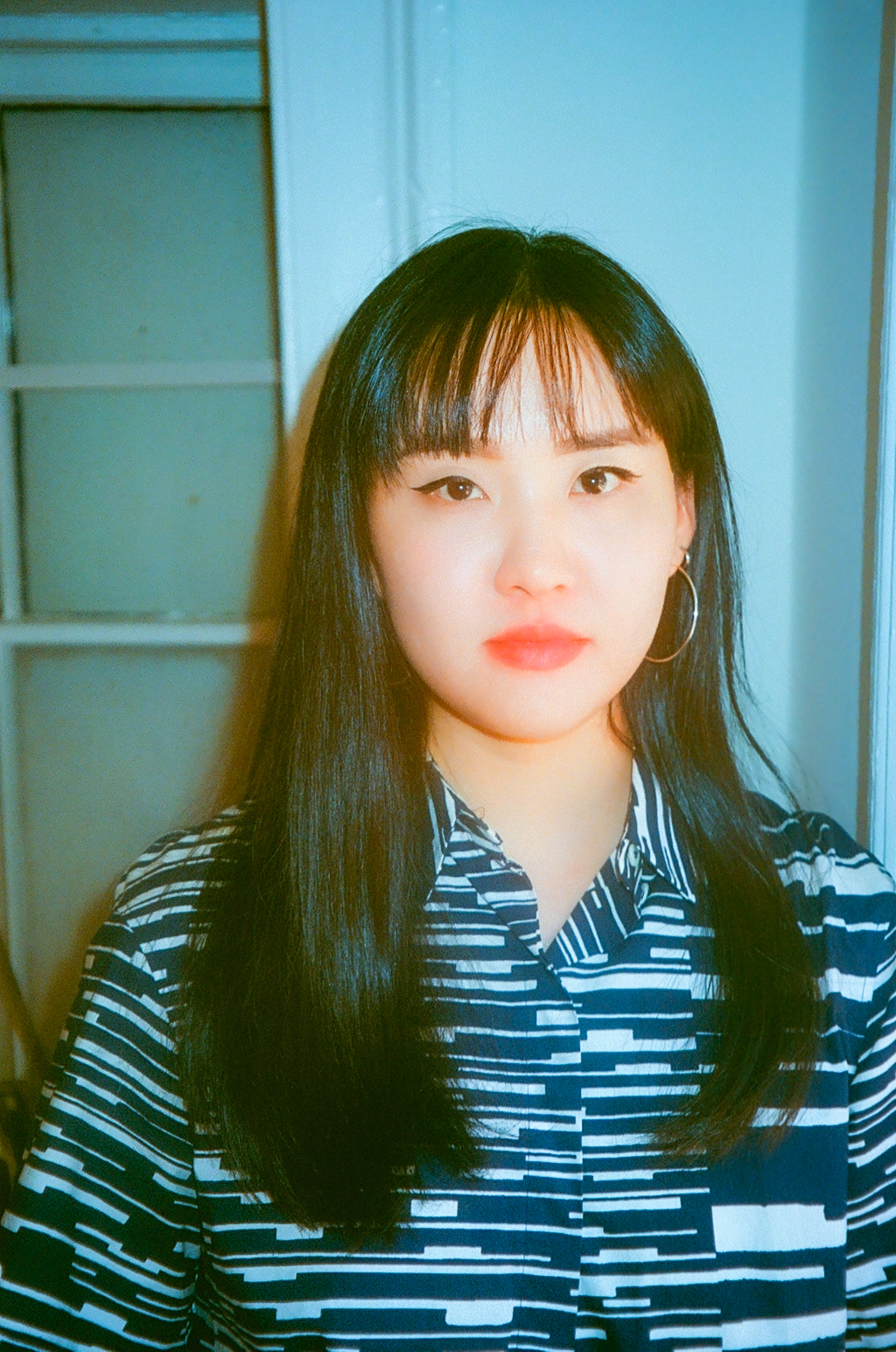
Talk to me about “Miso Mimi”.
Miso is my alias—she’s the better me. My initials are S.O., so it’s Me, S.O.! “Miso.” Miss Oh. Miso, in Korean, means smile. And of course, miso is a staple Asian flavour. Miso Mimi is about choosing yourself. It’s about me doing me, “Mimi.” I’m going off of these characters that I remember, ones I foresee and might become—women in my life who have taught me what it means to be a woman. It’s eight looks, because the number eight is made of two circles. I like numbers that can split into two, because we’re never just one thing. An eight is made of two zeros; if you flip it on its side, it’s infinity. I also like the number eleven for that reason because it’s one and one. They’re two beings that are whole, alone.
2050 prediction?
There’s going to be an even clearer distinction between the humans and androids. The people who care more about Instagram versus the people who care more about real life, which impacts friendships. People who care more about their following and unfollowing friends, not because they love them any less, but because they can’t benefit them on Instagram... I think that’s choosing an android life versus a human life. Sharp distinction between androids and humans: people of the same flesh, but of different priorities. I think there will be a vast divide between the two.
